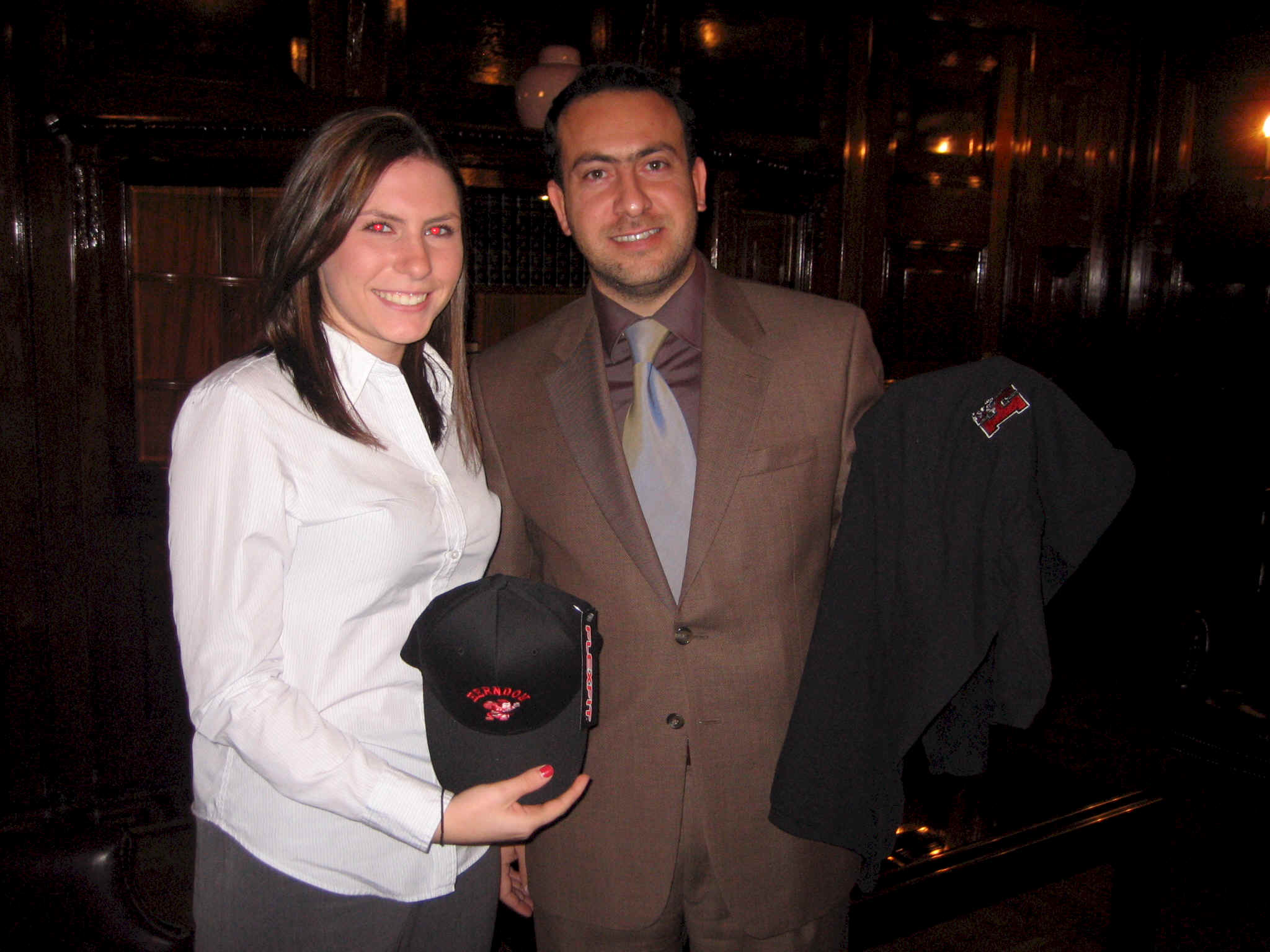
Embassy of Iraq

As the strongest supporter in my class of our efforts in Iraq and Iraq's quest to become a free and stable democracy, Julia had the honor of presenting HHS gear to Embassy 3rd Secretary Zaidoon Asmin as a token of our thanks for being welcomed to the Iraq Embassy. The meeting took place on November 19th, 2008.
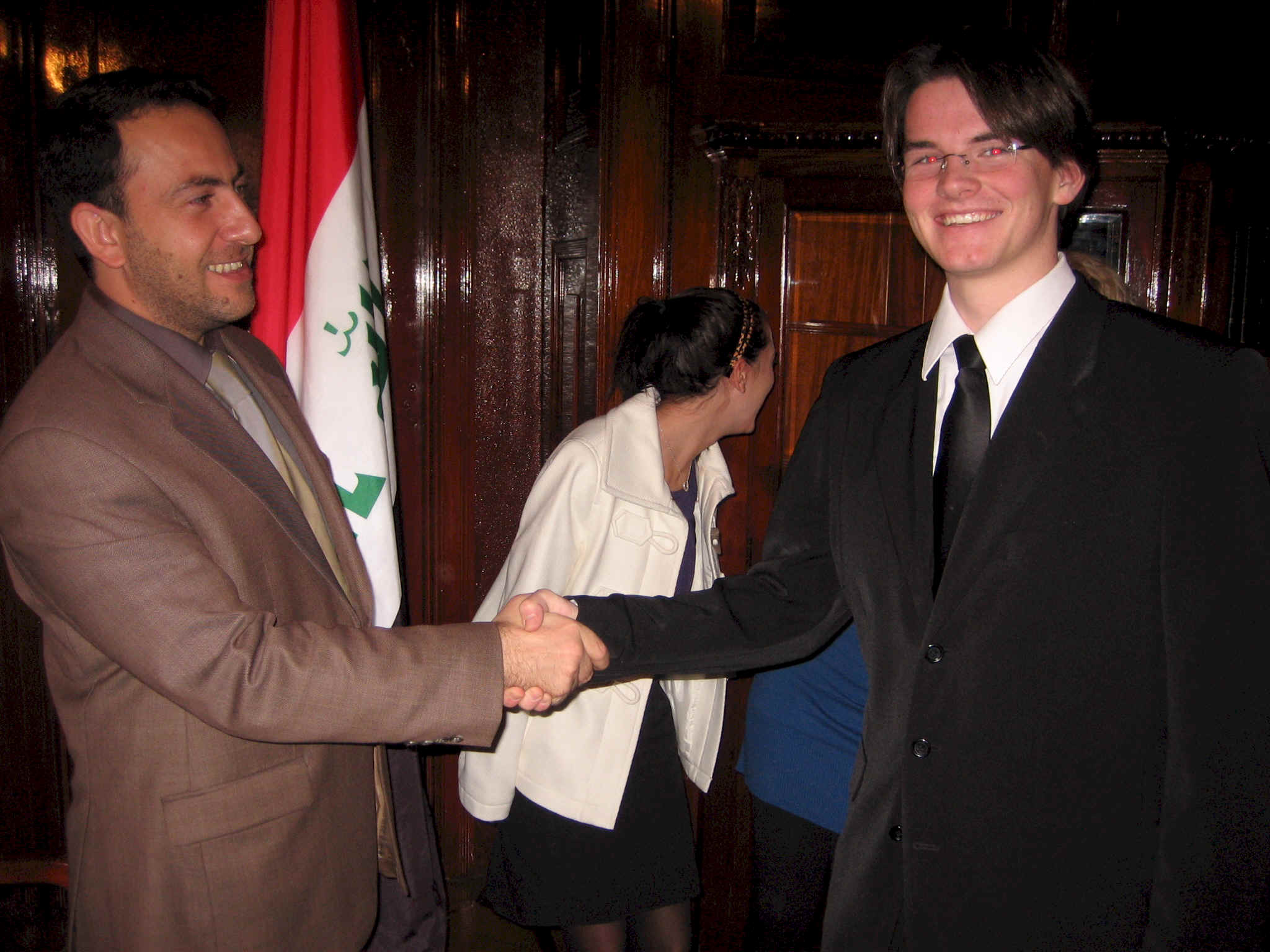
Zaidoon thanks Sean for Sean's father's service in Baghdad and Anbar Province. Sean's dad, who works for the Department of Defense, has been assigned to Iraq three times.
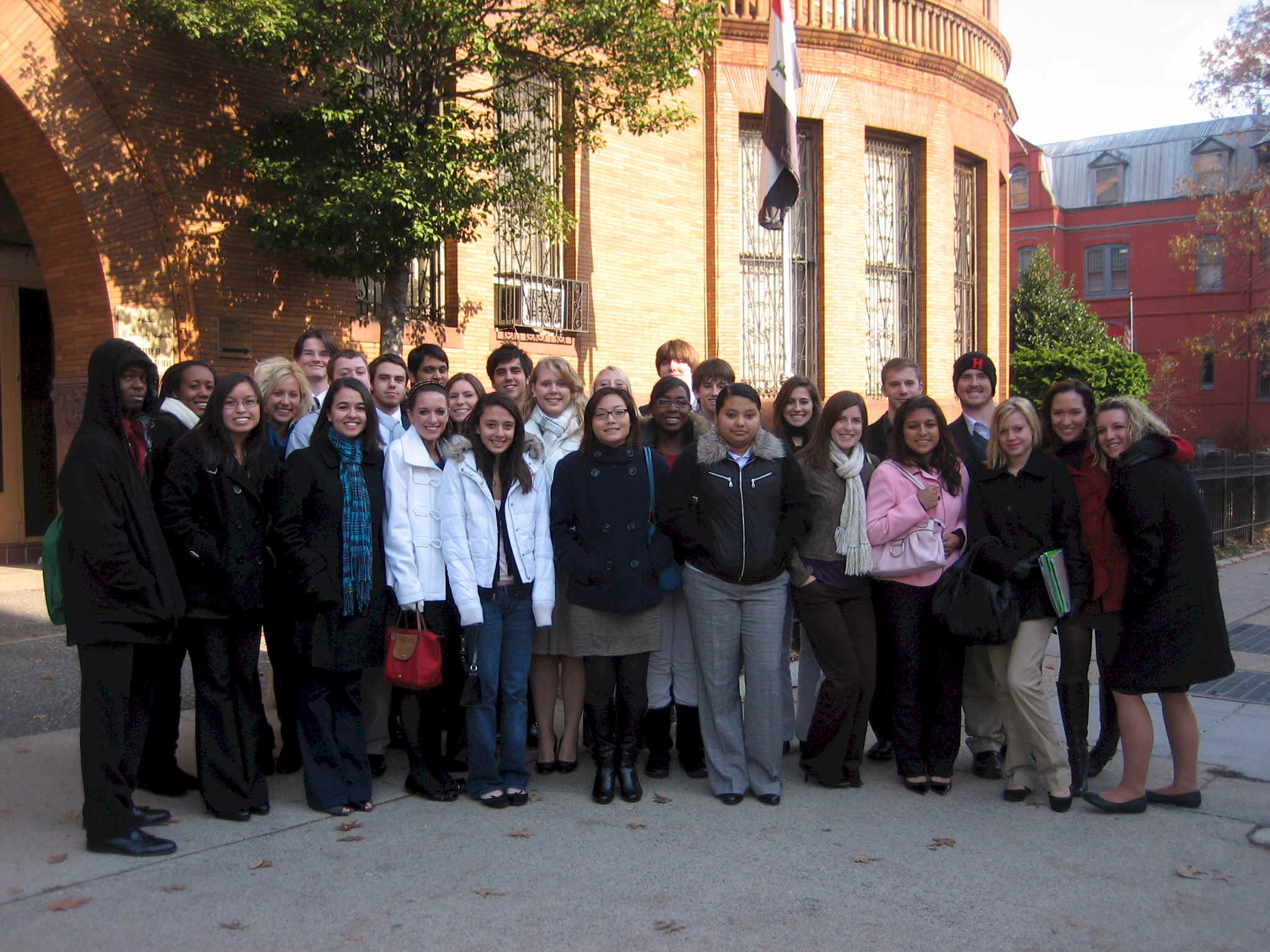
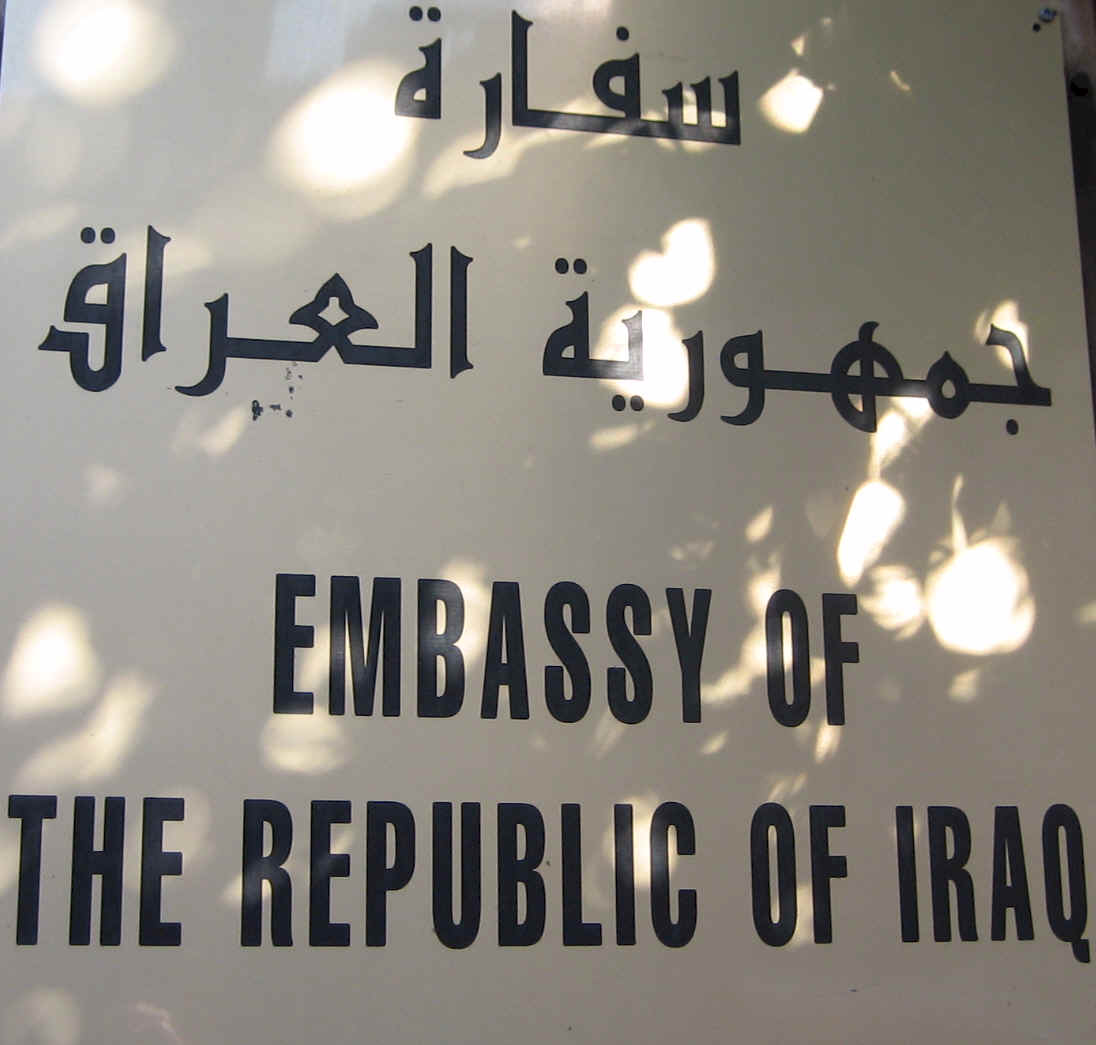
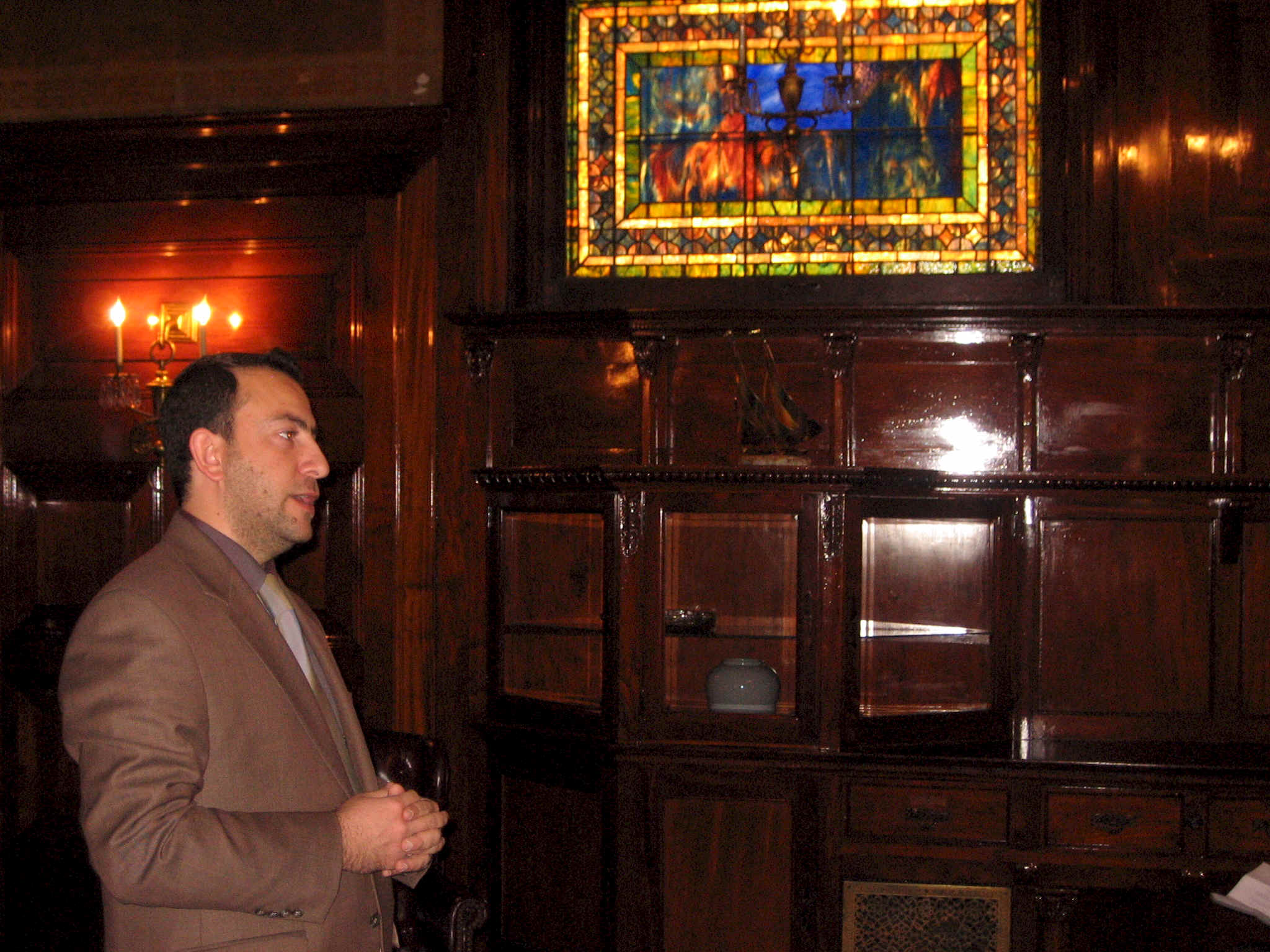
Mr. Asmin discussed the recent history of Iraq, it's relationship with the United States and it's neighbors plus Iraqi and American politics.
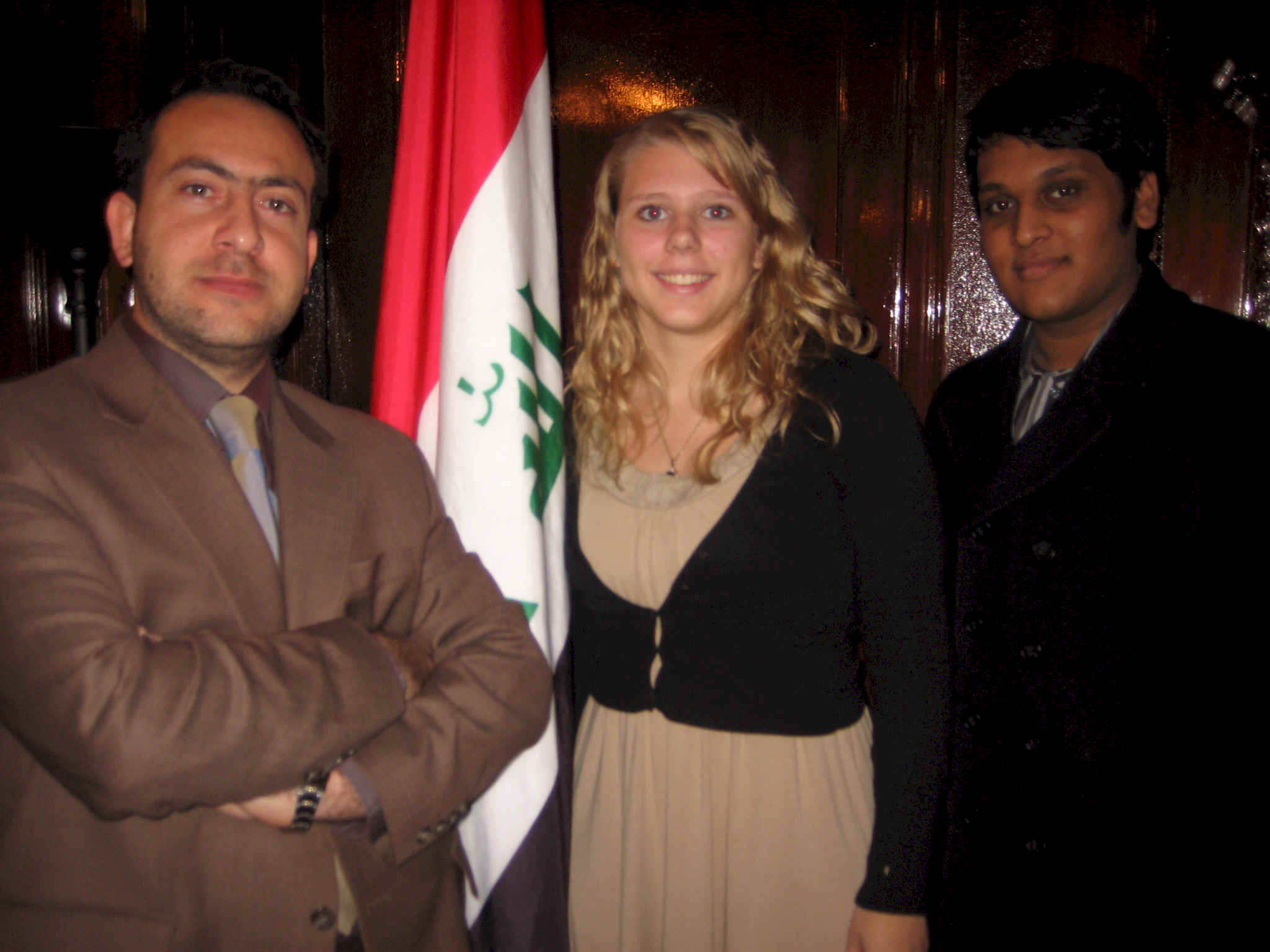
Analisa (with Ismael)- Iraq's have voted for a constitution, parliament and prime minister since 2003. How has the process of democracy changed Iraqi citizens compared to when Saddam Hussein ruled? ANSWER- It has been very different. People are able to have freedom of expression without being persecuted by the government. They have more television channels where anyone has the ability to criticize the government without retaliation from the government.
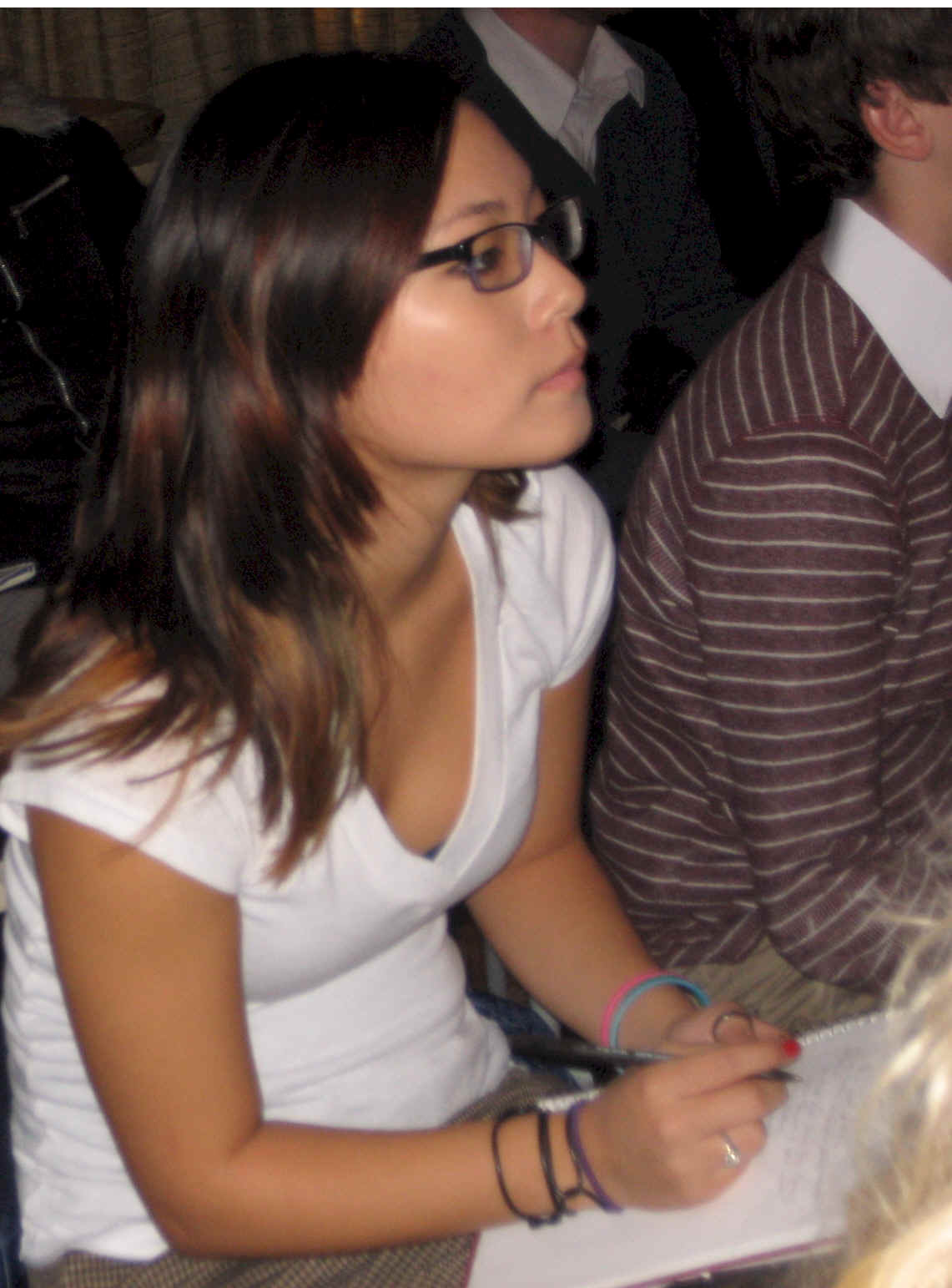
Maia- Do you foresee a day in Iraq when it will not matter to anyone what religion someone is? ANSWER- Yes, Iraqi people had lived together thousands of years without any problems of religion. We had mosques, churches, synagogues. When there is effective communication between the religious groups there will be harmony.
Lida (not shown)- There has been cross-border violence between Turkey and the Kurds in northern Iraq. Overall, how are your relations with Turkey? ANSWER- They are very good but the PKK are causing complications for both Turkey and the government of Iraq.
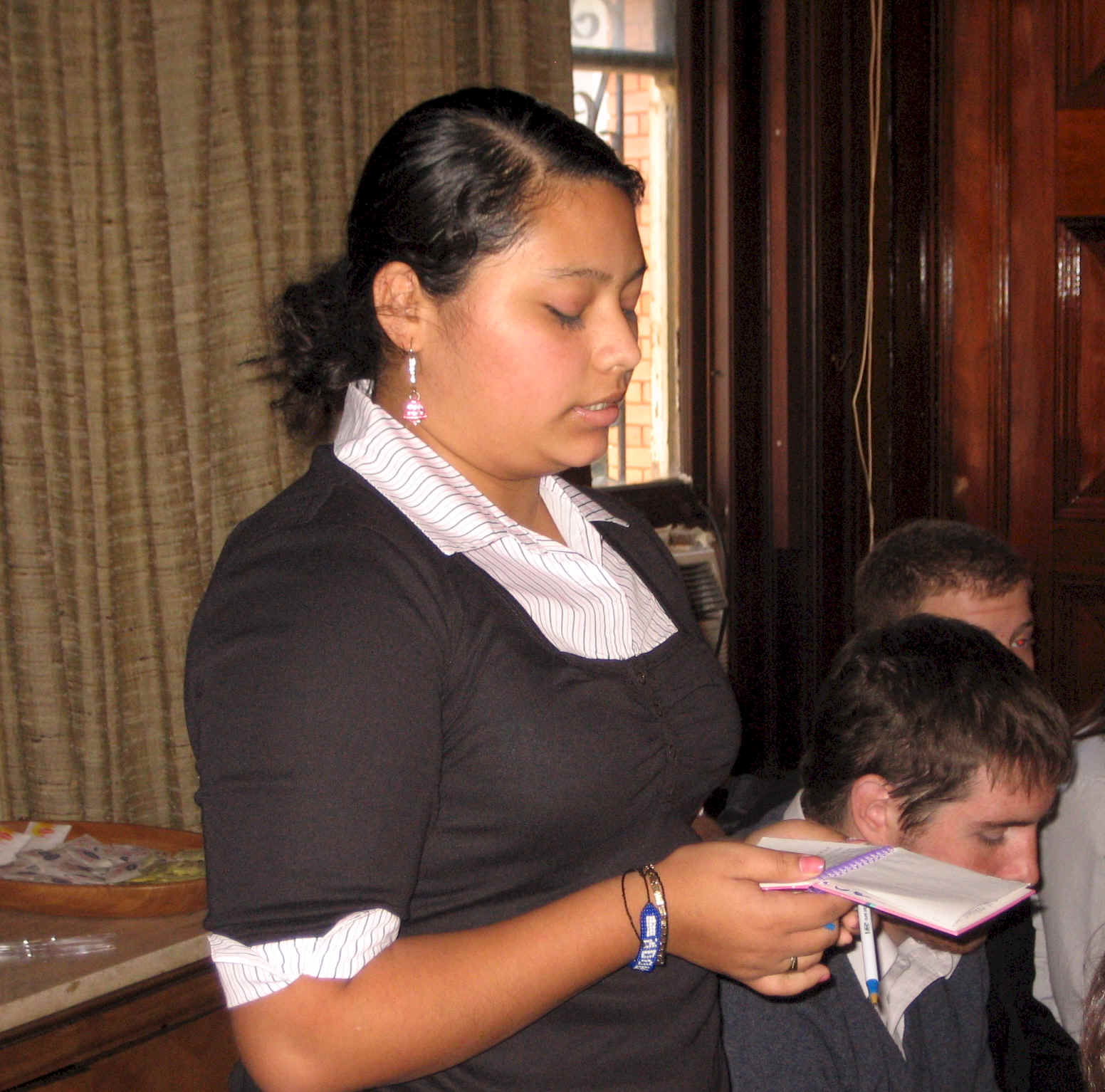
Norma- Did the government of Iraq have a preference between John McCain or Barack Obama in our presidential election? ANSWER- We did not take sides. We hope it is a new era for Iraqi and the U.S. We will of course respect the decision made by American voters. For example if President Obama and the American people want to remove U.S. troops we will respect that but we don't think it is the right time for that. Iraq is in a critical time right now. We need to control areas that are prone to Al Qaeda with the help of American troops.

Chris- Would your government use force to keep the Kurds in northern Iraq if the Kurds tried to form their own government? ANSWER- Iraq would not use force against the Kurds if the situation broke down to that point. The Kurds have a great deal of independence. They have never had it better. It is unlikely that the Kurds would attempt to secede from Iraq.
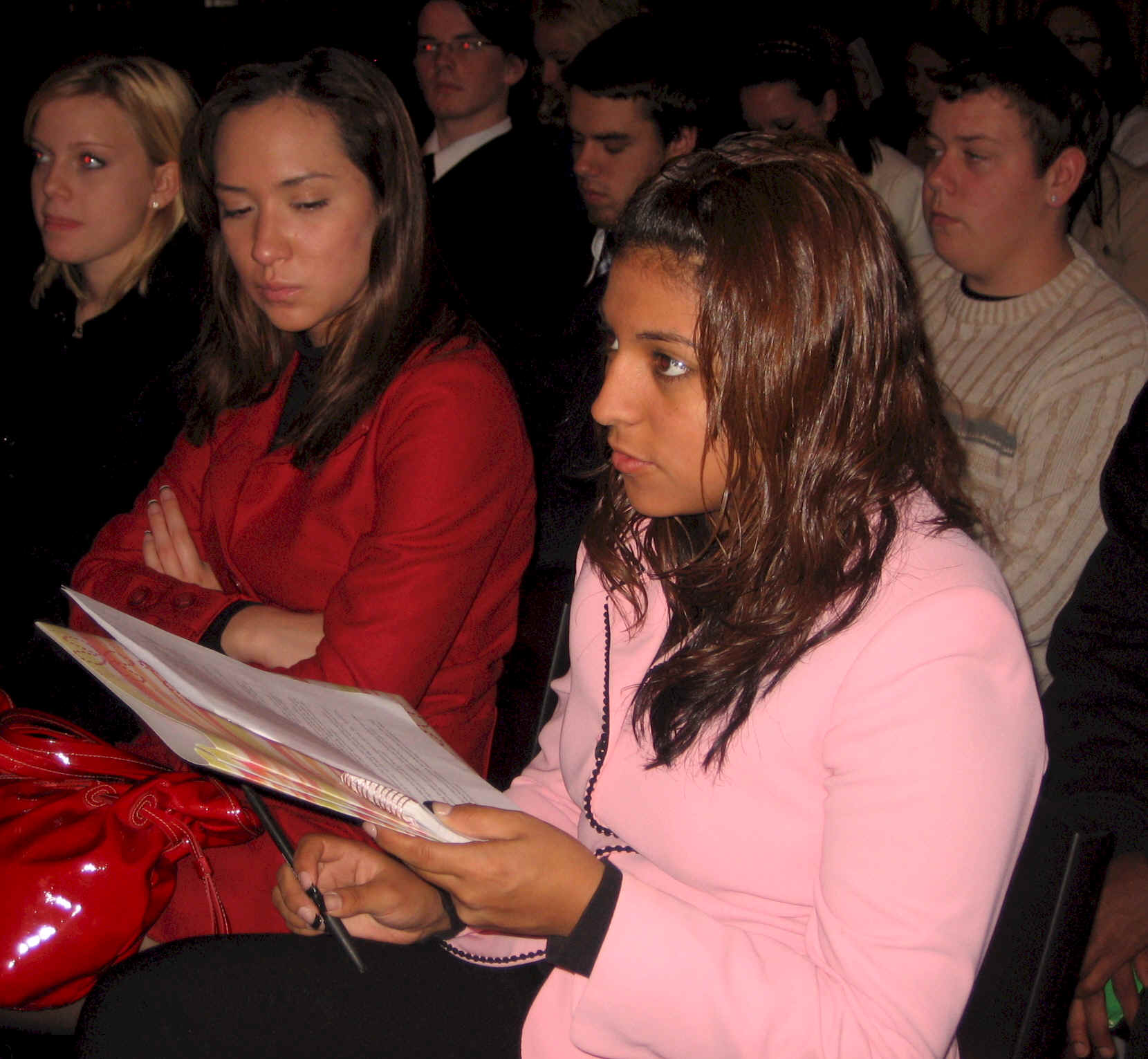
Sammy (center) Has the financial crisis that has hurt the United States and other nations affected Iraq? ANSWER- Not really. Banks in Iraq are developing too slowly. However if the price of oil continues to go down our economy will be in a crisis.
Jhoanne (right) There has been much discussion in this country about weapons of mass destruction and links between Al Qaeda and Iraq as justification for war against Iraq. As it turned out there were no WMD and no links with Al Qaeda. What is your reaction to the idea that the U.S. attacked your country based on mistakes? ANSWER- It is sad the United States attacked Iraq based on mistakes. It was good when you came to help.
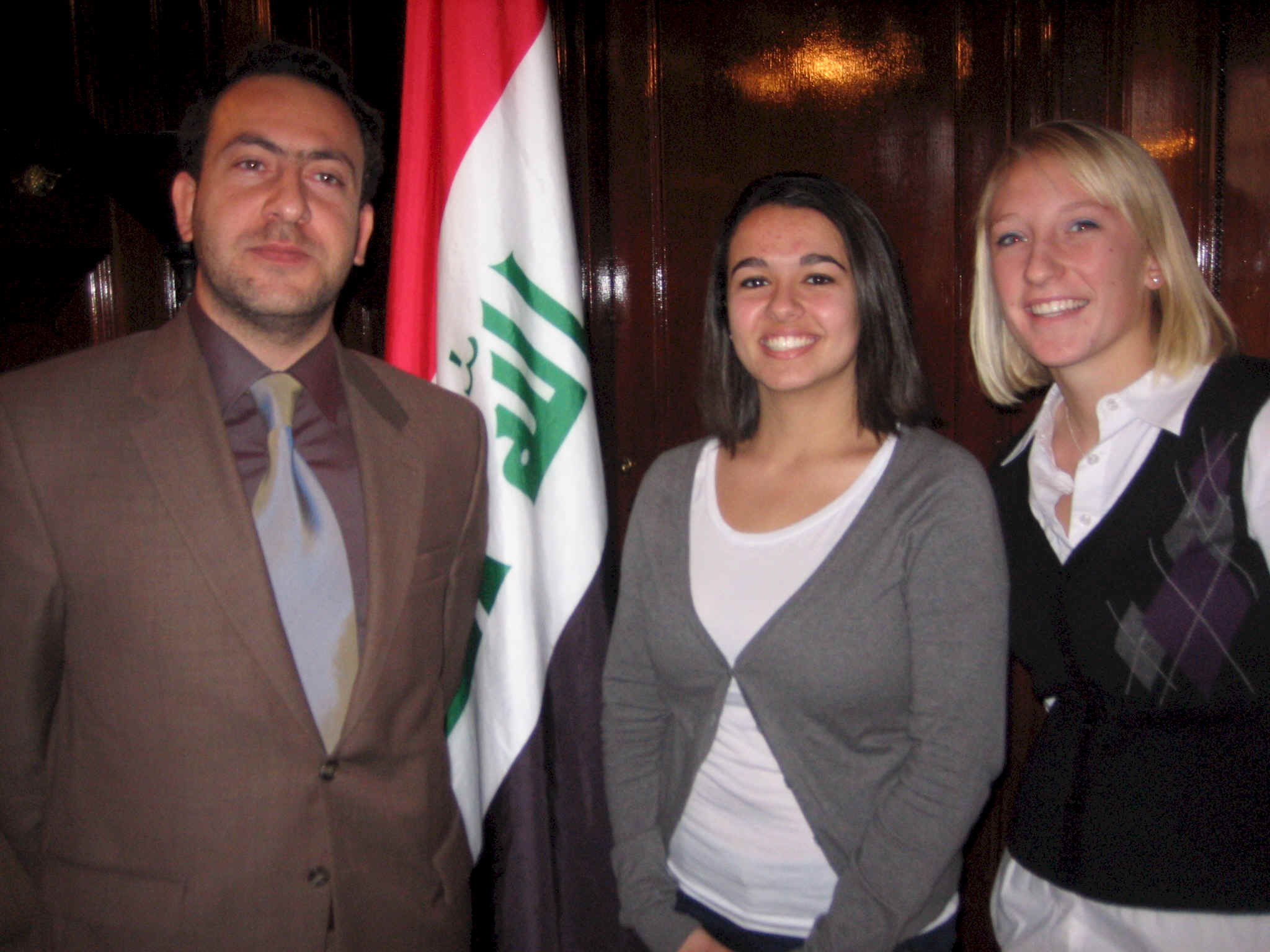
Fairuz (center, with Carrie)- Regarding the peace process between Israel and Palestinians, is there any reason why your country would not recognize and have relations with Israel? ANSWER- This is a very sensitive area. Our stand towards Israel conforms to that of the Arab League.
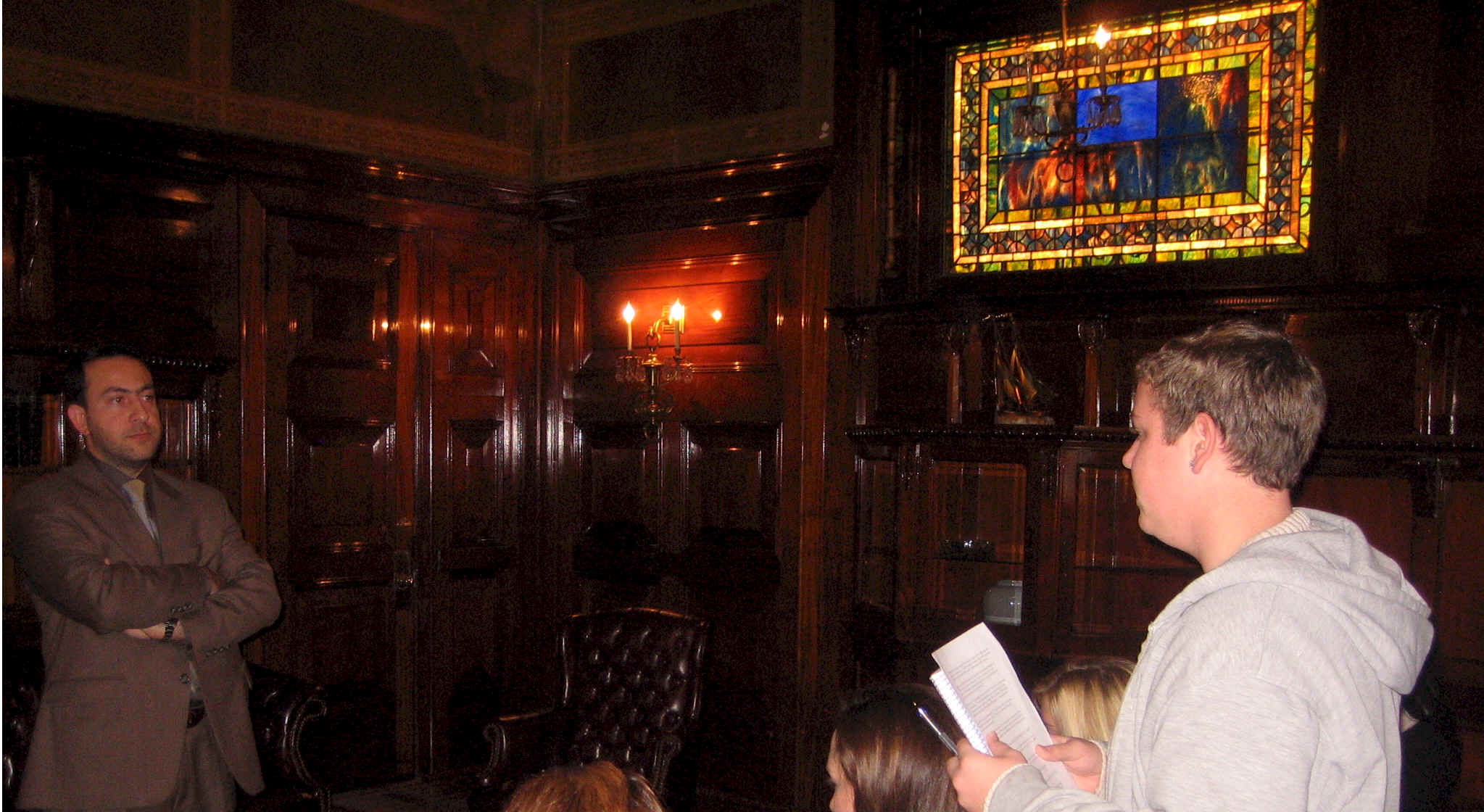
Tyler- Recently Babil province became the 12th of 18 provinces where security was transferred from Americans to Iraqi's. When do you anticipate the next 6 provinces making that transfer? ANSWER- Iraq is still unstable. The situation on the ground will determine when that happens.
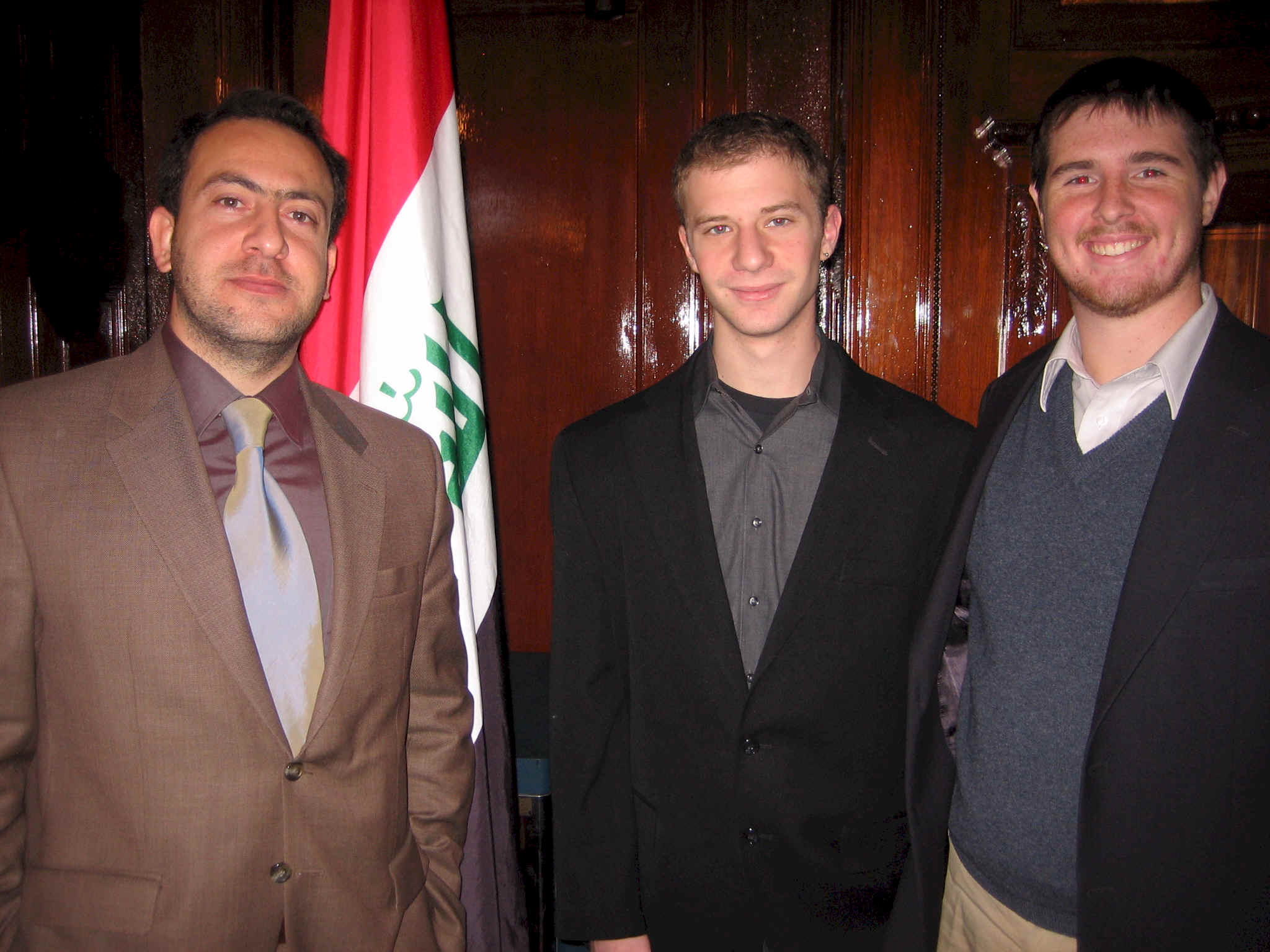
Joel (center)- How concerned are you about Iranian influence or interference in your country? ANSWER- We are concerned about Iranian influence but I hope Sunni's and Shia's will band together to resist. We do commend the Iraqi security forces for arresting several Iranians who were attempting to smuggle drugs and weapons into Iraq.
Will (right)- In Bob Woodward's book "The War Within" he described President Bush as not being able to understand the ingratitude of Iraqi's. Do you agree with Bush's view that Iraqi's are not grateful for American actions in your country? ANSWER- Iraqi's acknowledge the sacrifices of Americans and common losses we have had in this war. But everyone would say "No" to someone coming to your country with grenades and guns. But overall, I think Iraqi's are appreciative.
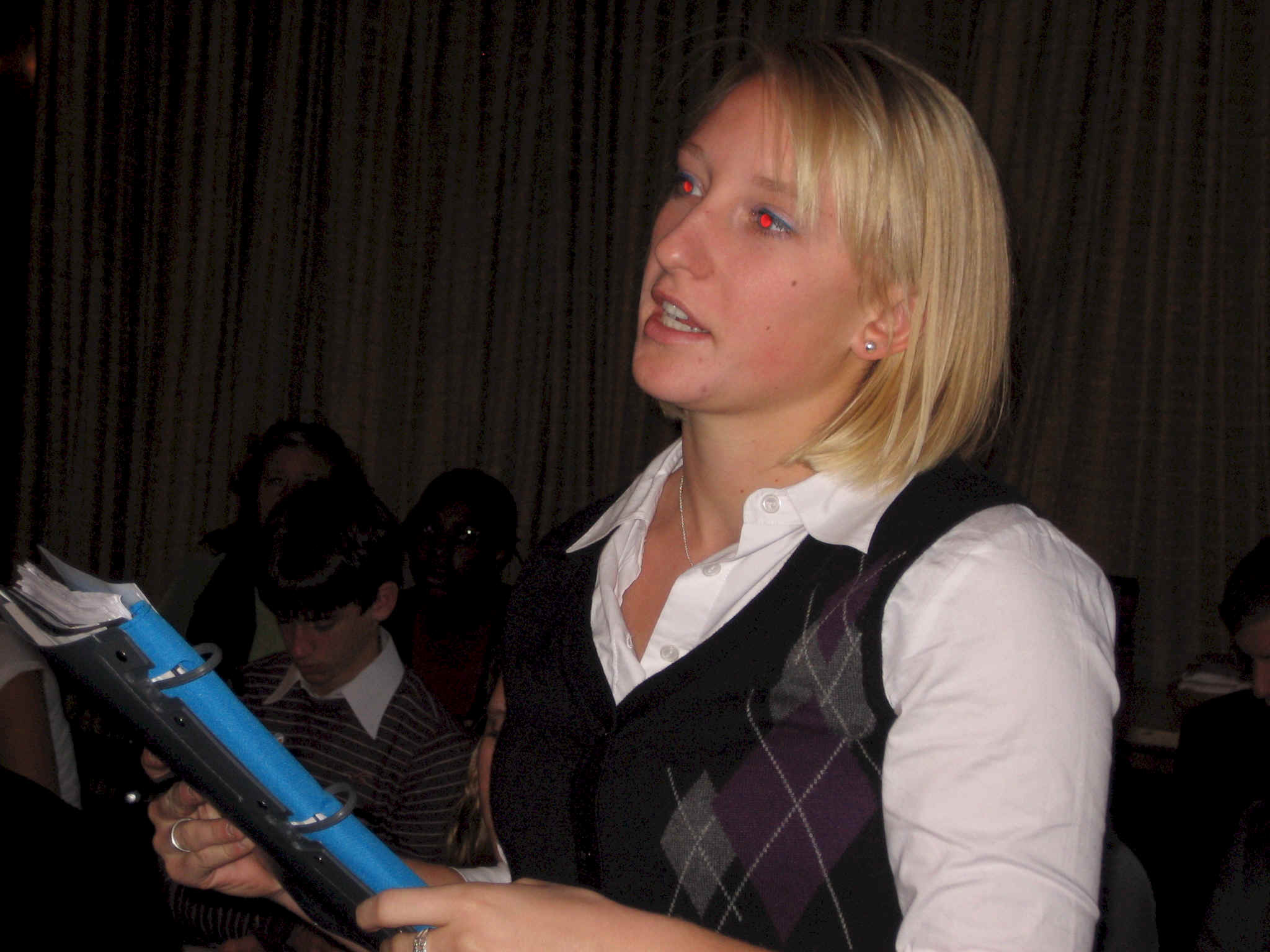
Carrie- Between the summer of 2003 and early 2007 when the bombings and sectarian violence was at its worst, did you think Iraq as a nation would continue to exist? ANSWER- That was a terrible time but I'm confident that the changes we have seen over the past year and the presence of democracy will bring us into the future peacefully. But right now Iraq is like a patient in intensive care. The U.S. needs to be there to keep stability.
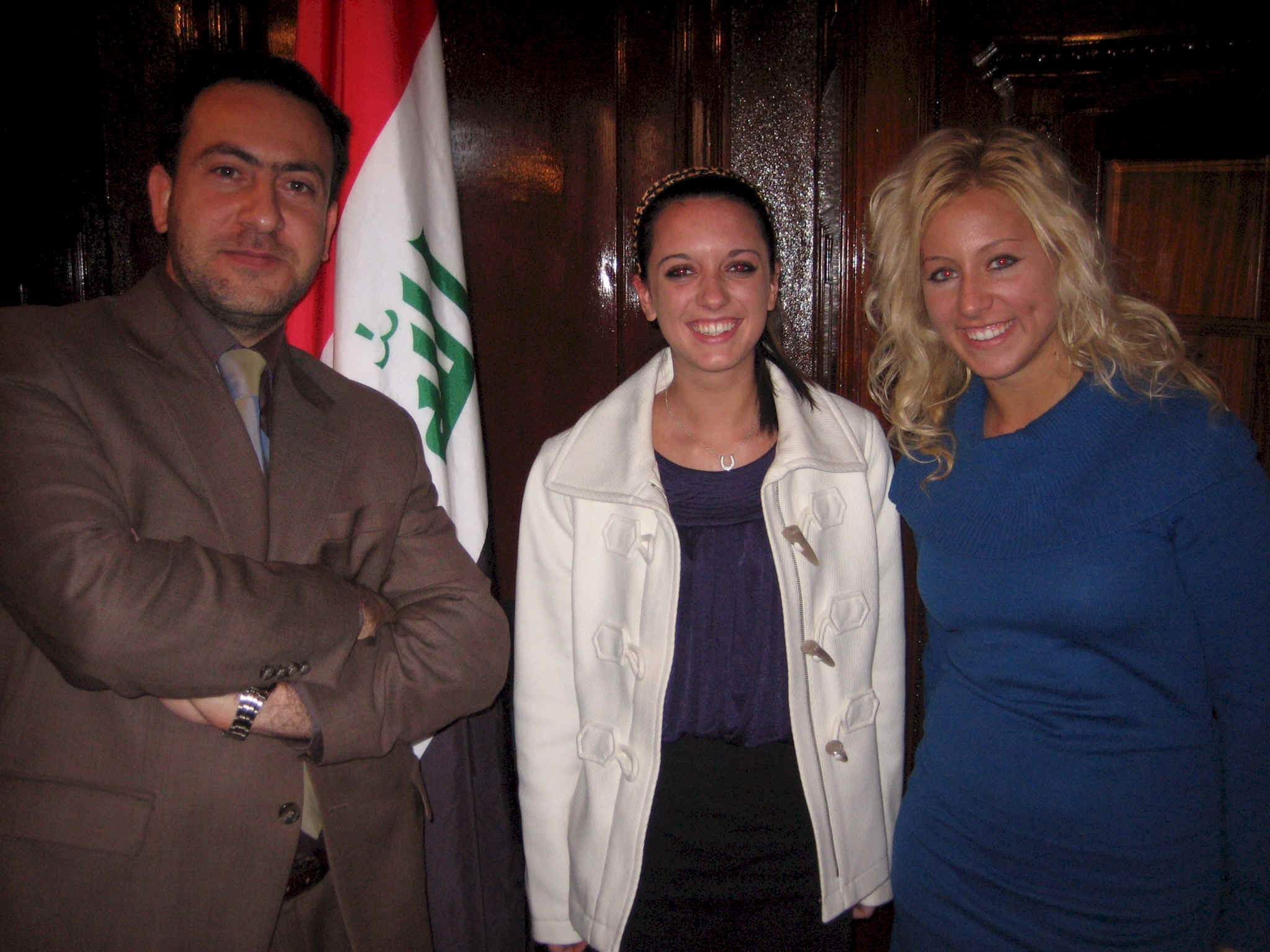
Shea- American taxpayers have spent 600 billion dollars on the Iraq war. Would you consider this a good investment by Americans? ANSWER- The Americans wanted to go to war and wars cost money. It was your decision to be spending this money therefore I have no opinion on whether it was a good investment.
Mary- One of the reasons Saddam Hussein invaded Kuwait in 1990 was because Kuwait had historically been part of Iraq. Do Iraqi's still view Kuwait that way and how are your relations with Kuwait? ANSWER- We view Kuwait as a neighboring country; two separate entities. Kuwait does not belong to us and most people in Iraq realize that.
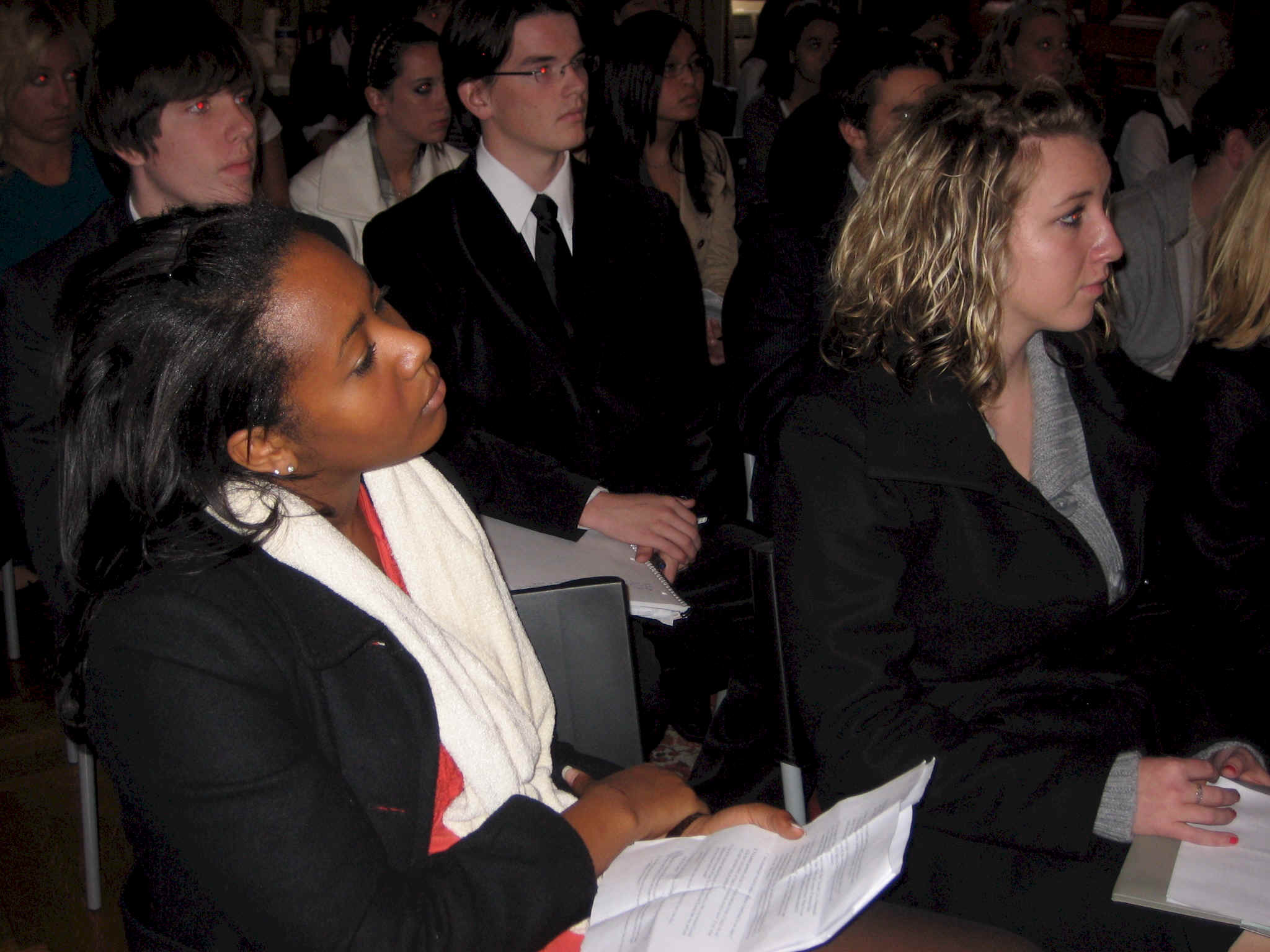
Kirsten- The first President Bush arranged a coalition of nations which removed Iraqi troops from Kuwait. Is there any lingering resentment towards him for that? ANSWER- Invading Kuwait was the biggest mistake Iraq ever made. From that time in 1990 until now it has put Iraq in a bad position. It is against logic to invade a neighboring country, that started all our troubles. We are still paying the price for that. Throughout the 90's we had the embargo which devastated the Iraqi people. We lived in hardship and that delivered violence. It made the reputation of all Iraqi's negative. But there is not resentment towards the senior Bush for that.
Hillary- What do you think your country will be like in 5 years? ANSWER- It's hard to predict but I hope a place where the rebuilding process is continuing and where major companies investing and working. It will be like the way it was if things go the right way. We used to be one of the best countries in the Middle East. We would have a type of democracy. There is a moral obligation for America to support us. They should be there to keep things the way they should be.

Melissa- What do you think is the most important thing Americans should know about Iraq or the Iraqi people? ANSWER- The present time for Iraq is sensitive. The average American does not know the Iraqi people as they should. They know from the TV and that is biased. The only thing America knows about Iraqi people are that they are violent. What we see on TV is not the whole truth. The Iraqi people are not really harsh to each other. The USA is stable in terms of security and politics. But during Katrina people robbed stores and did terrible things. When people are put under pressure they act in strange ways. What you see on TV is exaggerated and is a result of the conditions that the Iraqi people have been living under.
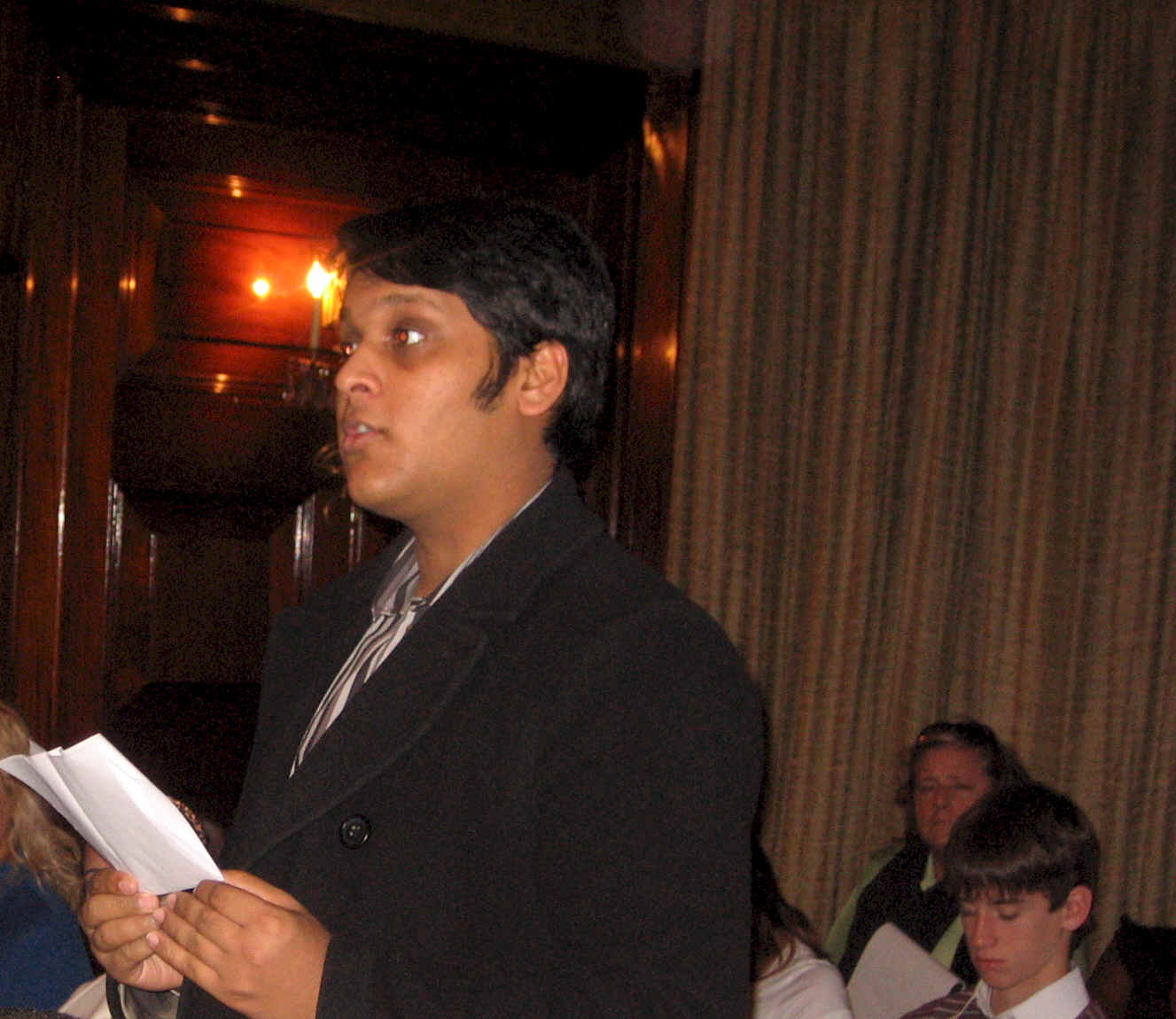
Ismael- Will Iraq be dominated by Shia's because they are the largest population group in Iraq? ANSWER- Not necessarily. Iraq is a democracy and if the ballot boxes indicate that Shia's are the majority that creates no problem. Religious views do not play a role in leadership and all people should be governed equally by leaders.
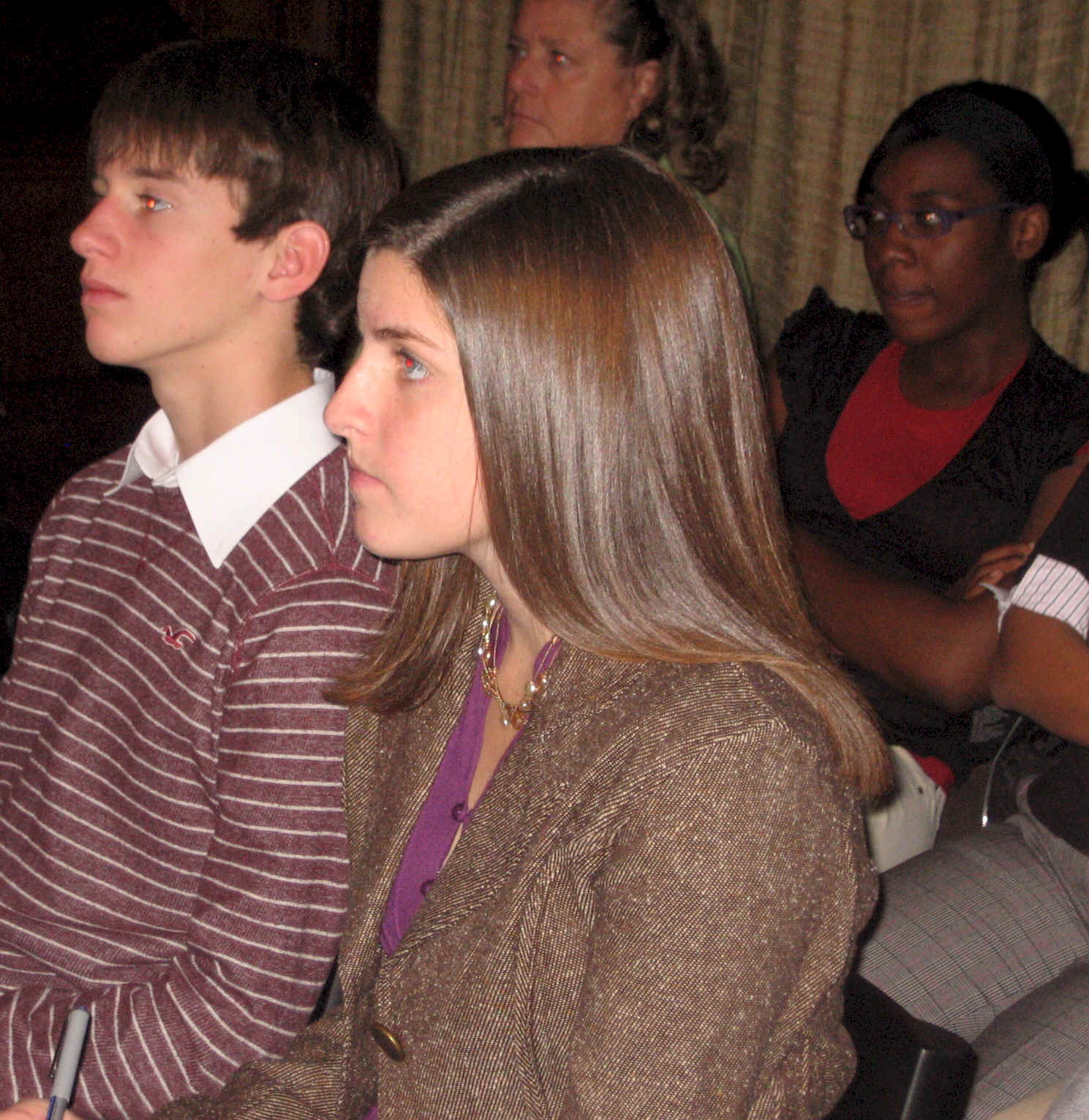
Sarah- When you consider the 100,000+ Iraqi's killed plus all the wounded and the million+ refugees, would you say this war was worth removing Saddam Hussein? In other words, would the last 6 years have been worse if Saddam were still in power? ANSWER- The numbers may be much greater. In any war you can expect there to be death, violence and suffering. Clearly it is sad to think of all the many lives lost but the Iraqi people were accepting of that notion. Saddam Hussein's regime seemed to be endless. When the Iraqi people looked into the future of their country, they foresaw Saddam passing rule unto his son and then grandson. When they imagined that, they knew that meant years of suffering. Under Saddam you could not even state what you believed without the fear of being punished. When the chance to overthrow this tyrannical ruler came, the Iraqi people rejoiced in that prospect, despite the unavoidable casualties. In addition, many mistakes were made after the removal of Saddam, such as leaving the border's unguarded, no sovereignty and groups like Al Qaeda coming in and making Iraq a battleground.
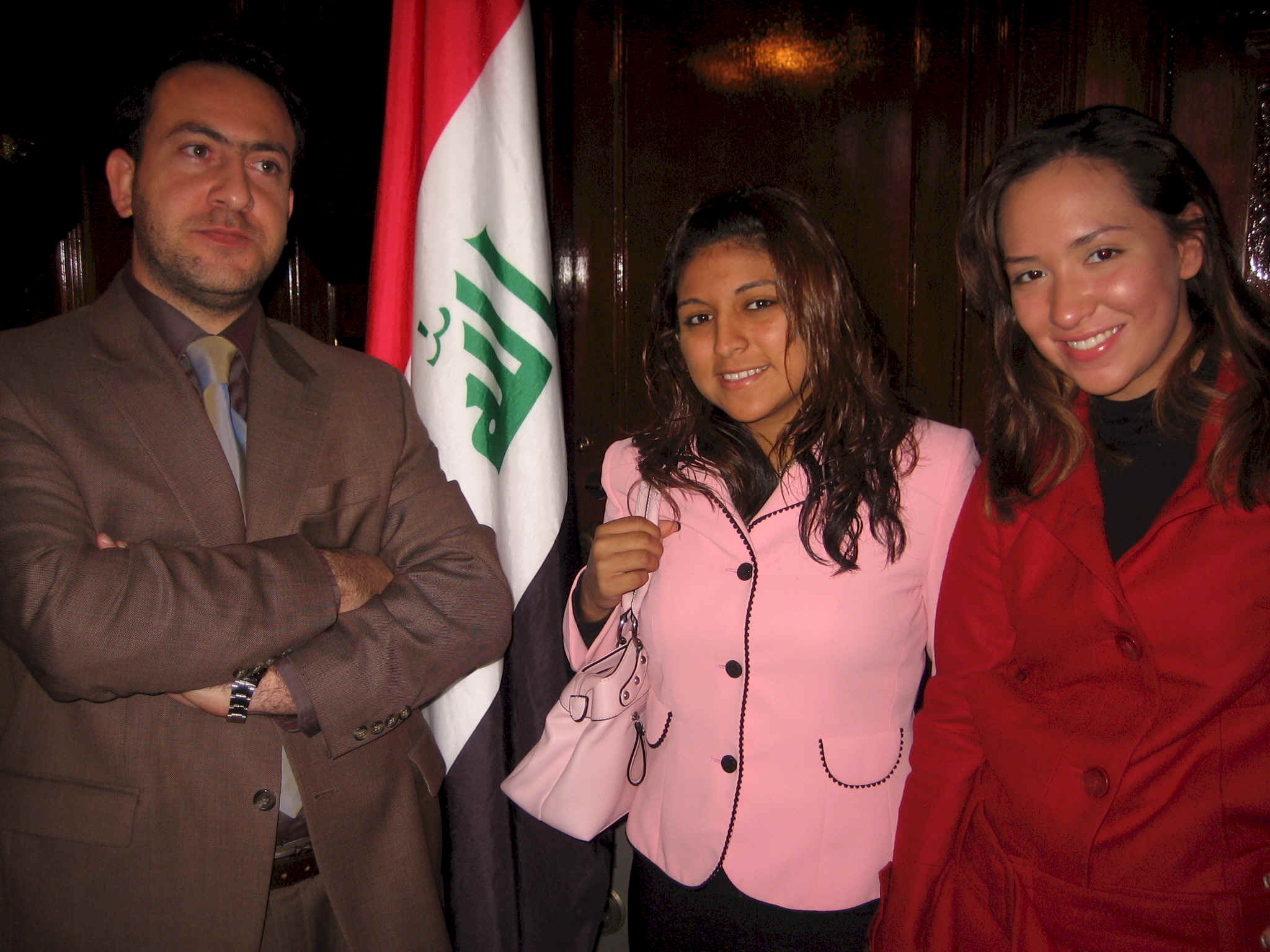
Jhoanne and Samantha
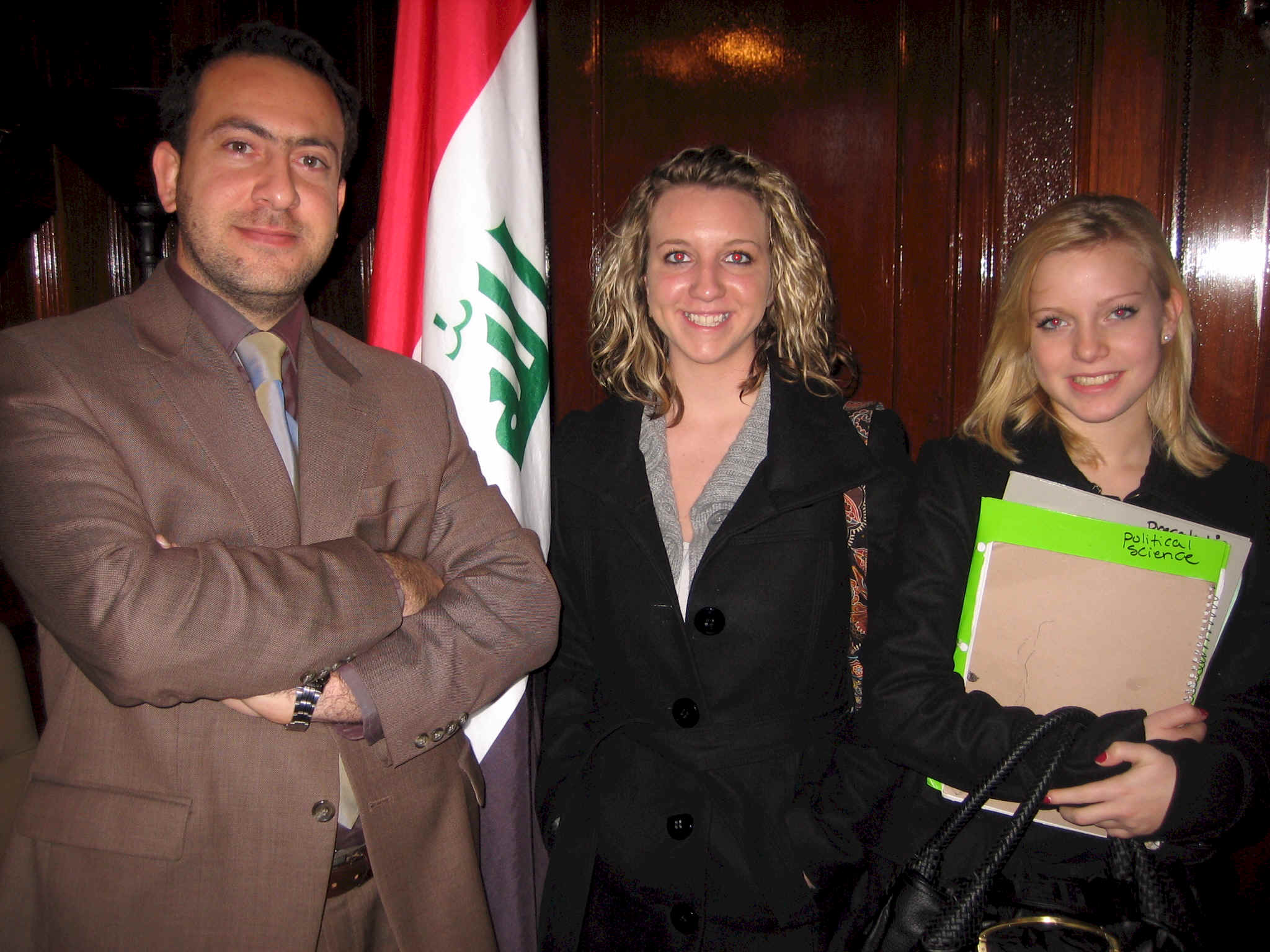
Hilary and Melissa
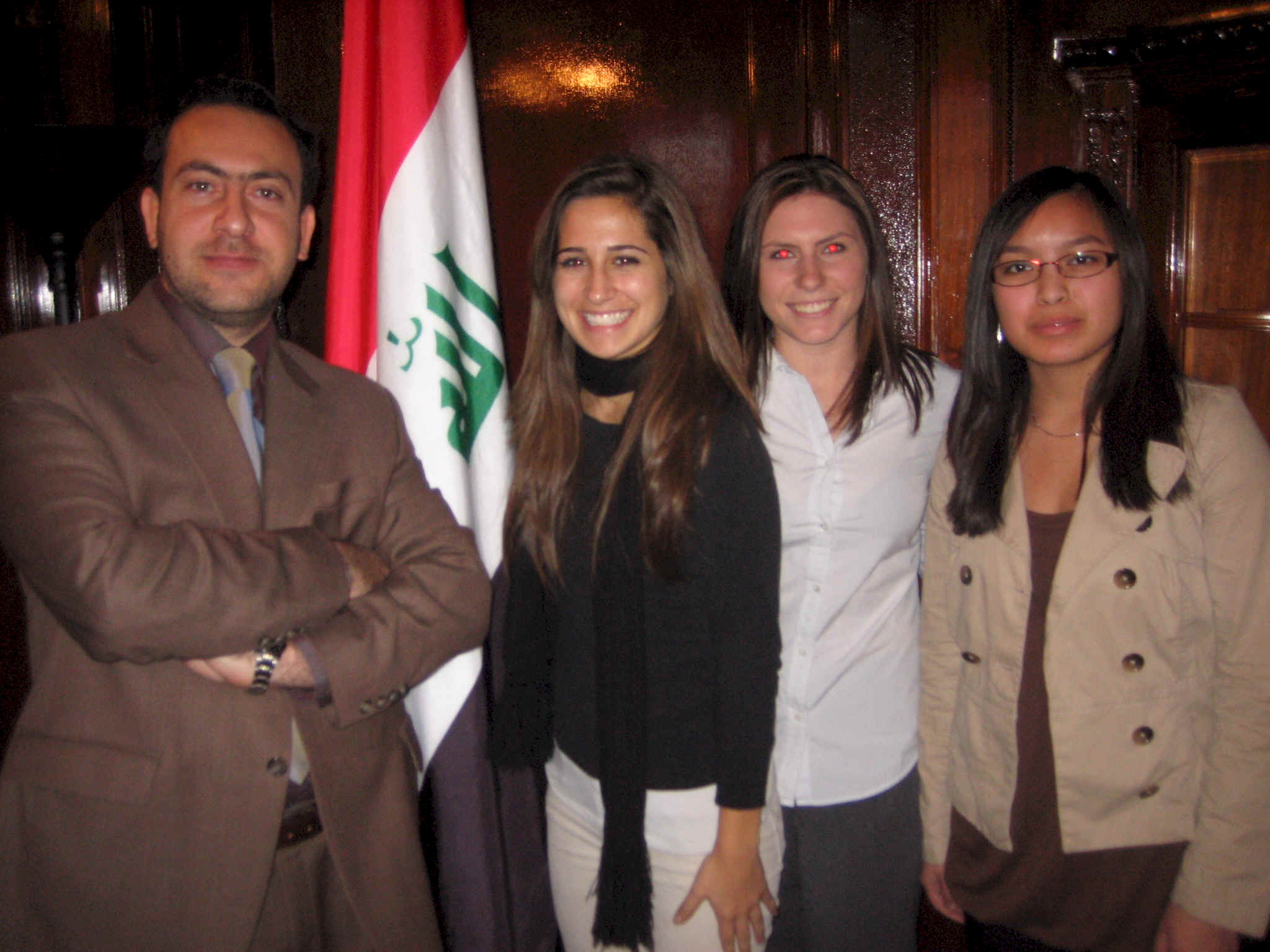
Veronica (left)- Does it bother you that on the afternoon of 9/11/01, members of the Bush administration were looking to blame Iraq for the attacks that day in order to justify removing Saddam Hussein, as reported by the PBS program Frontline? ANSWER- No. 9/11 was a terrible thing but to some extent we can't blame them for looking to remove Saddam Hussein.
Julia (center)- Many in the American
media have noted that while Iraq has a budget surplus of 70 billion dollars,
America is having one of the worst financial crisis' in our history. Yet
American tax dollars are still paying for the cost of rebuilding Iraq. Is
this story accurate and what is your reaction? ANSWER-
The story is accurate but only to some level. The 70 billion dollars
we have is not enough to rebuild the infrastructure in Iraq. We are saving to
rebuild. The biggest share of that money will go to the big American companies
contracting in
Jen (right)- On October 23rd the Washington Post ran a story titled "In Sadr City, a Repressed but Growing Rage." The article stated that Shia's feel a sense of betrayal from the current government and that the government is taking sides against them. What is your reaction to that and do you think Shia's will continue to remain peaceful? ANSWER- The Iraqi people want to live in peace. The Iraqi government has representatives responsible for conveying information to different groups to reduce protests.
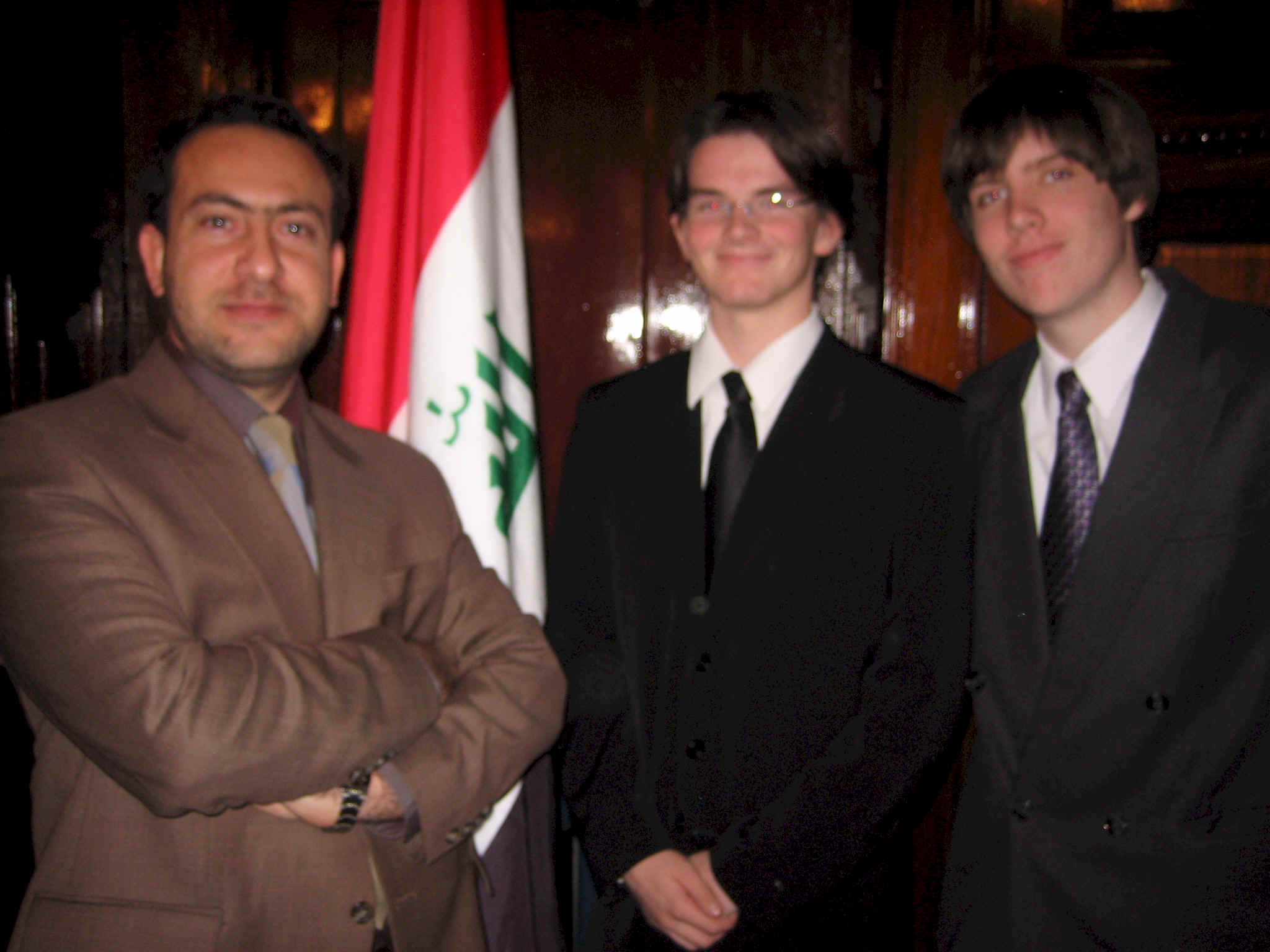
Sean- My father has been to Iraq three times. With the moderate success of the Surge, do you believe that he will be safer when he goes for the 4th time? ANSWER- To a certain extent, yes. Iraqi's have come to realize what American security forces have done in Iraq and that it is a benefit for them to go to a market and not worry about a bombing. Iraqi's went after Al Qaeda and that has led to everyone being safer in Iraq, including your father when he returns.
James- It appears that bombings in Iraq will be significantly higher in November than the previous two months. Can you identify a reason for this increase and do you think this trend will continue? ANSWER- Every time there is about to be an election or achievement by the government, bombings go up. There was the recent agreement to remove American troops so it's not surprising that some would try to sabotage that. Iraq will never be as violent as it was during the first years of the war. Security is being upgraded but even with that there are terrorist cells that are hard to prevent. With the continuing growth of Iraq as a nation and with the help of the American troops, the violence will continue to be reduced.
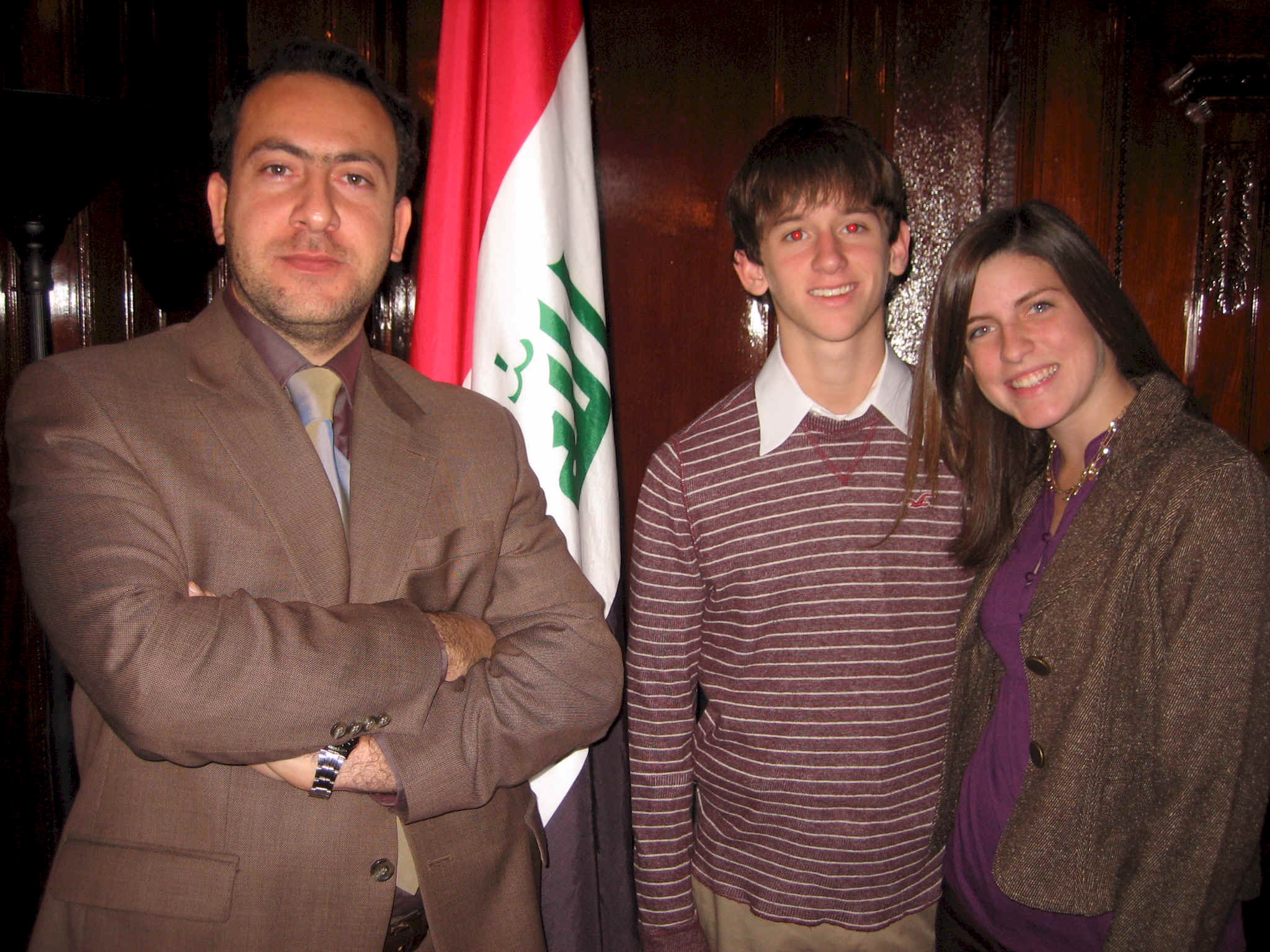
Chris and Sarah
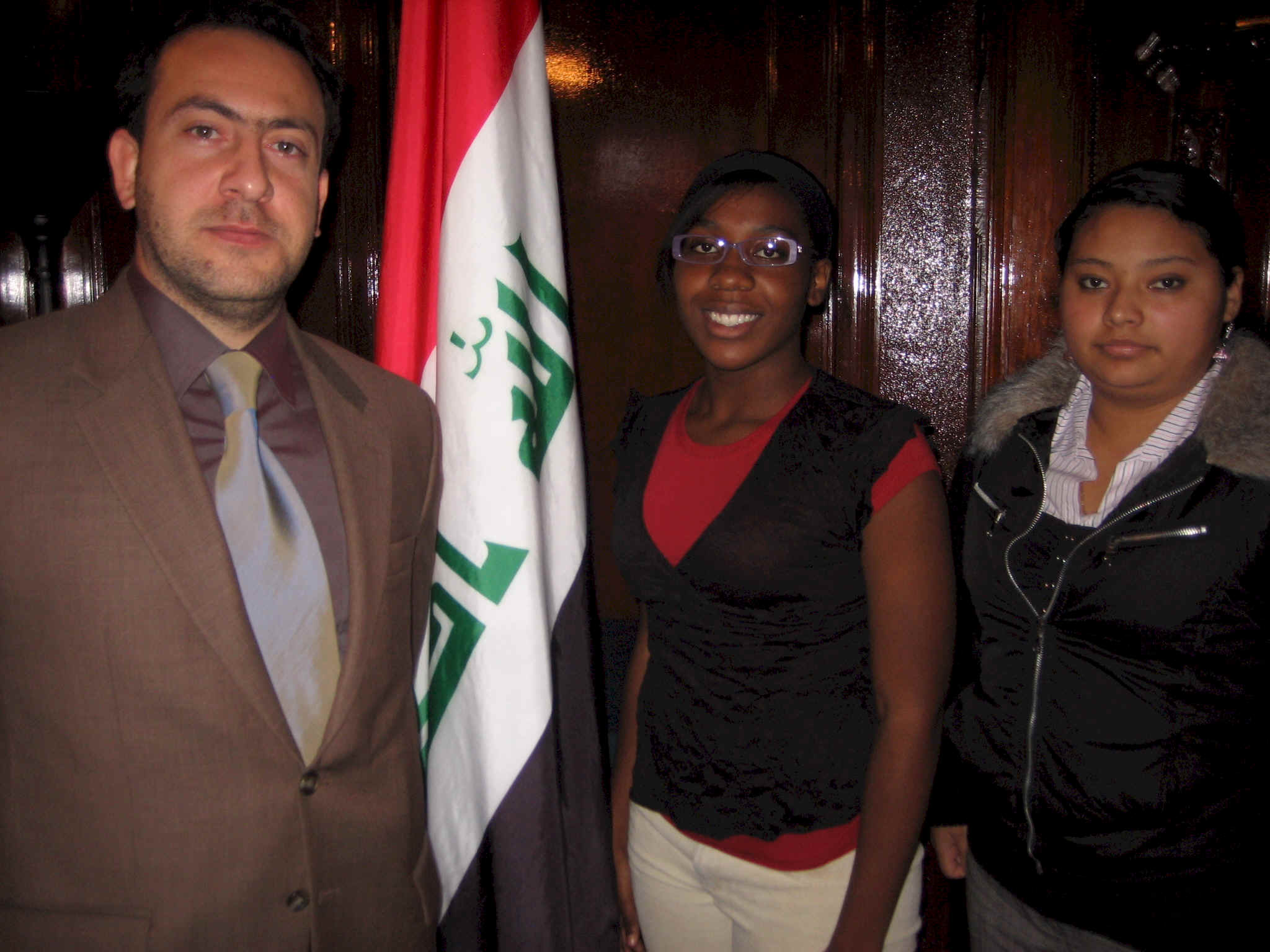
Brenda (center, with Norma)- Is Prime Minister Nouri al-Maliki supported by most of the people in Iraq, including Sunni's? ANSWER- Yes. He was elected with Sunni participation. Everyone had a say.
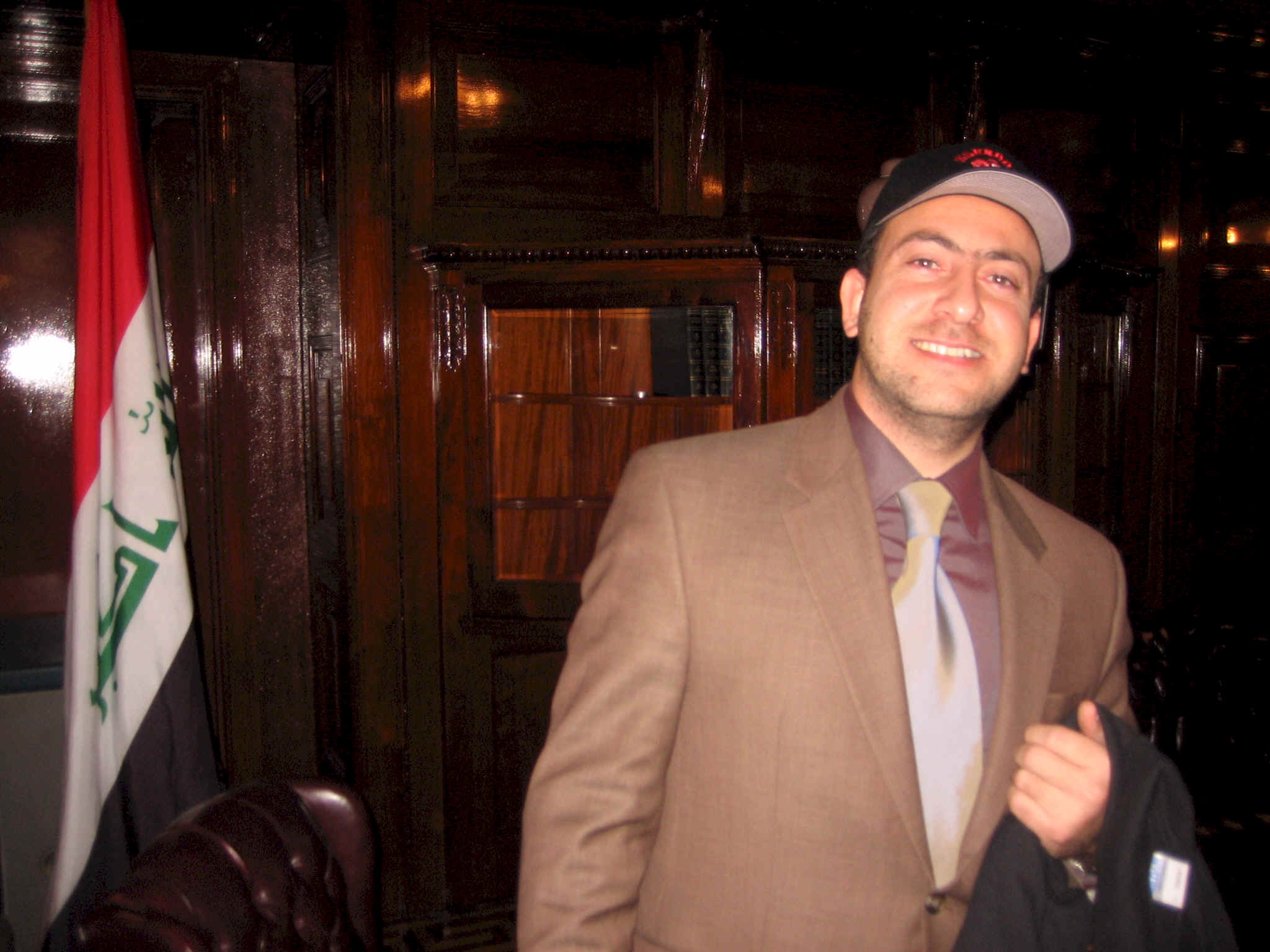
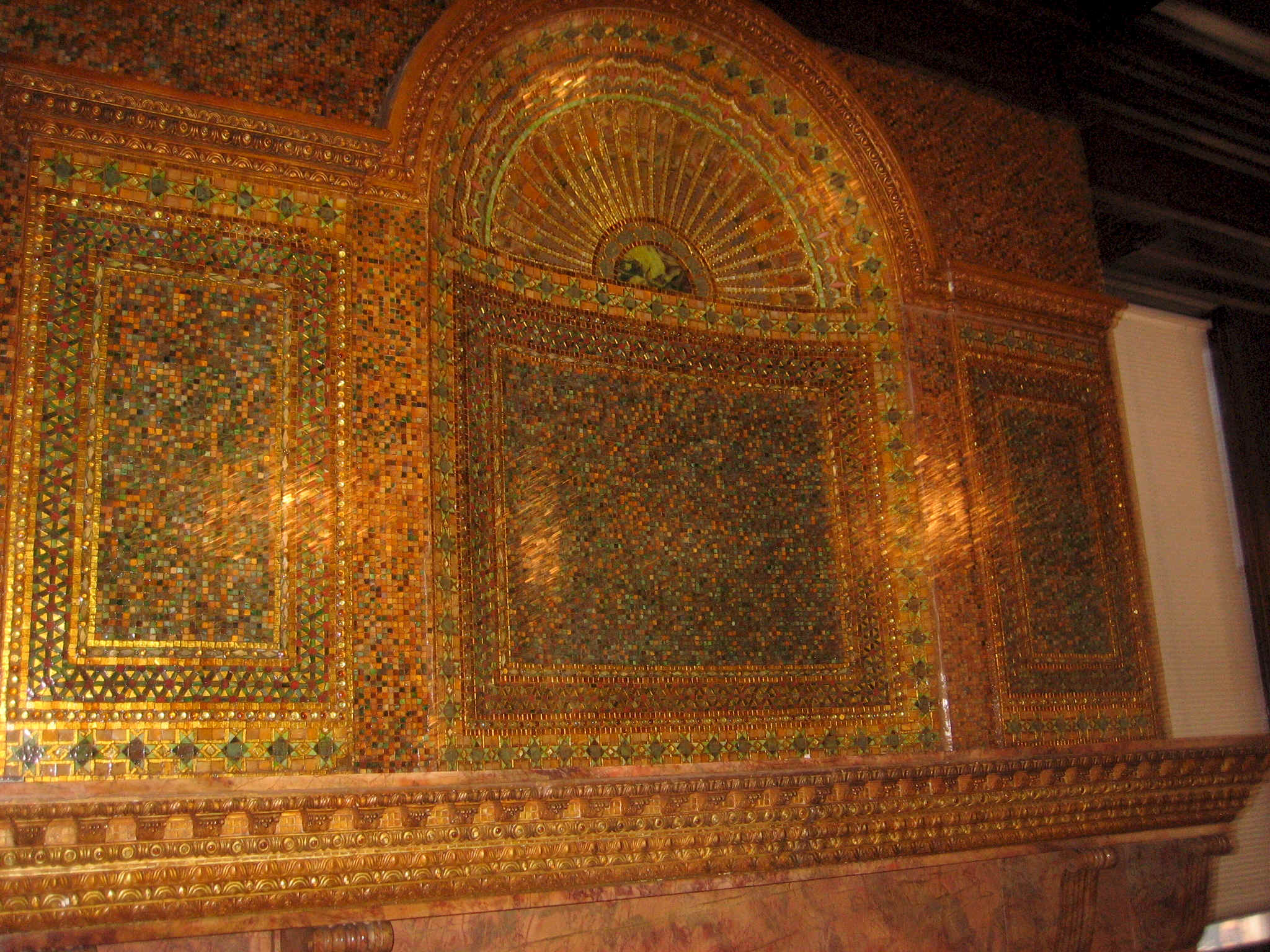
Fireplace mantle in embassy
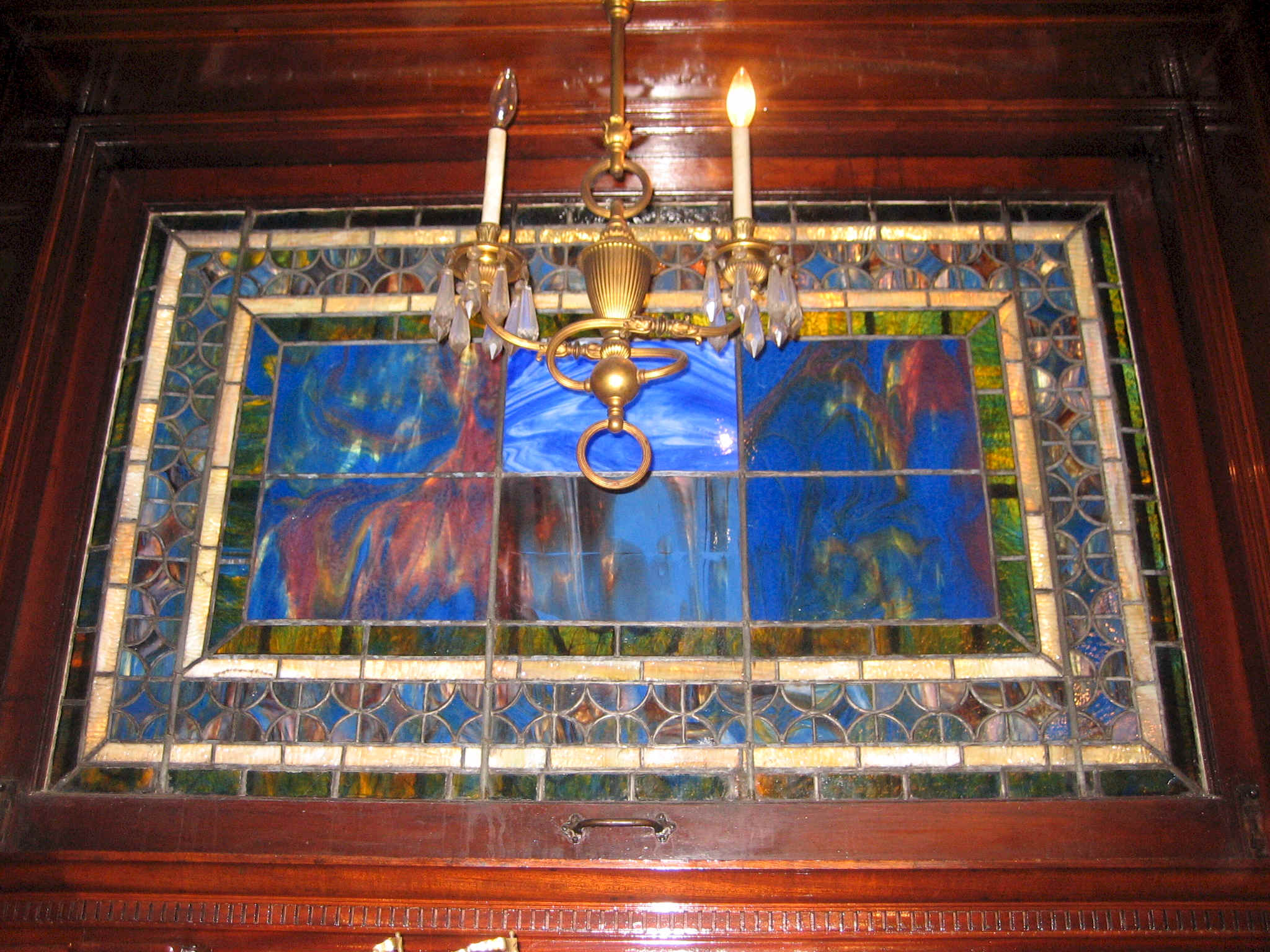
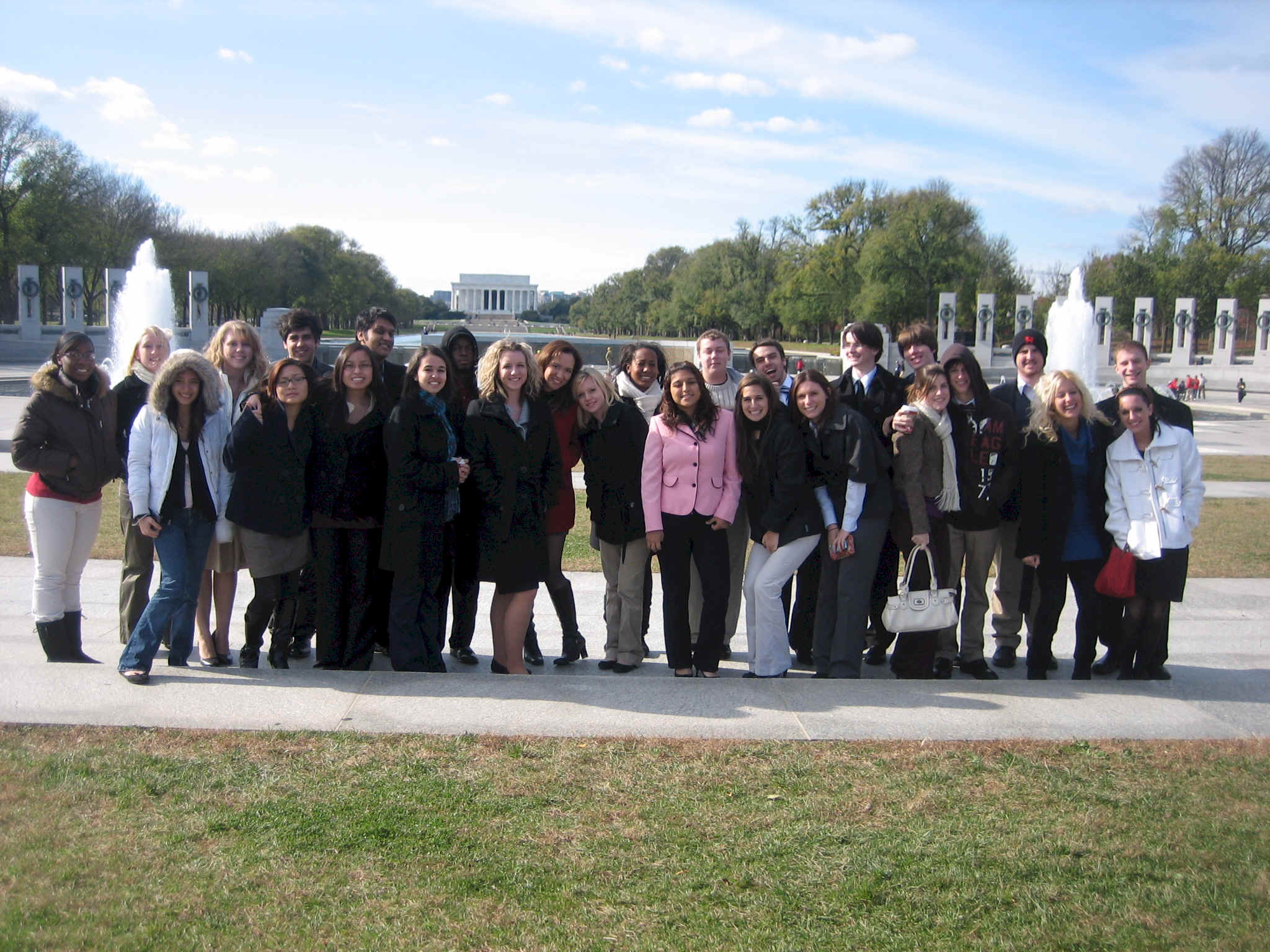
At the World War II Memorial
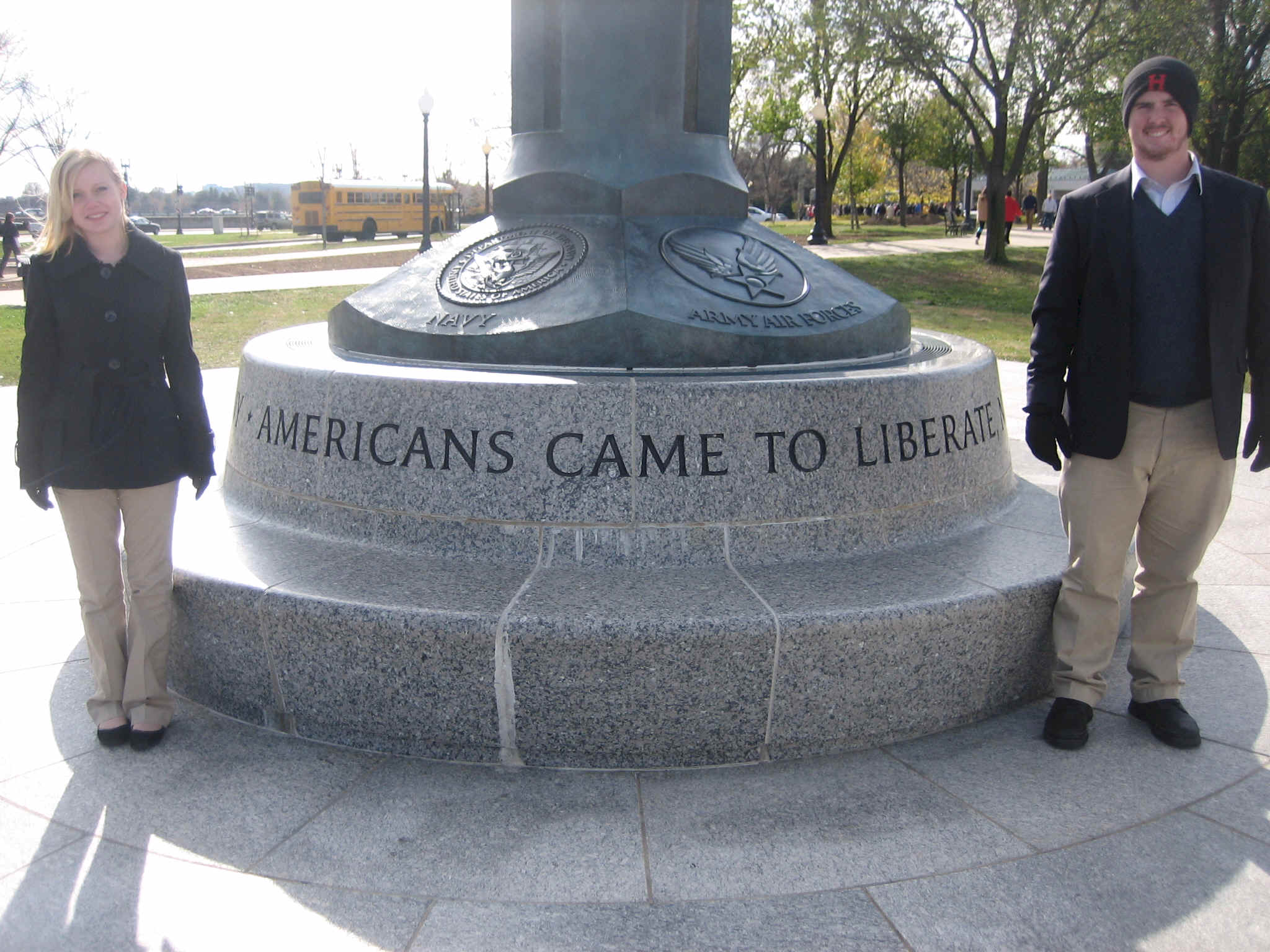
Melissa and Will
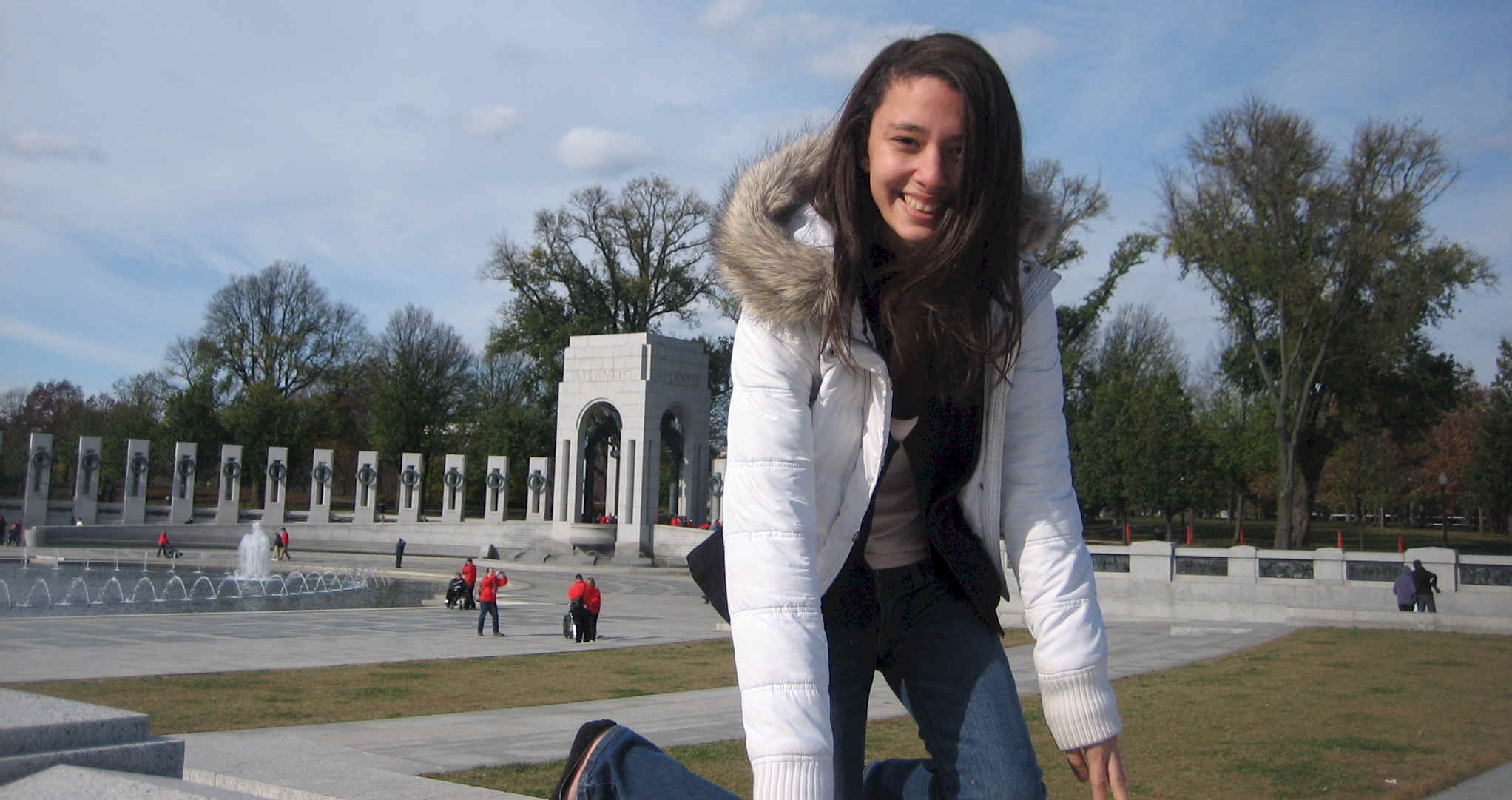
Lida
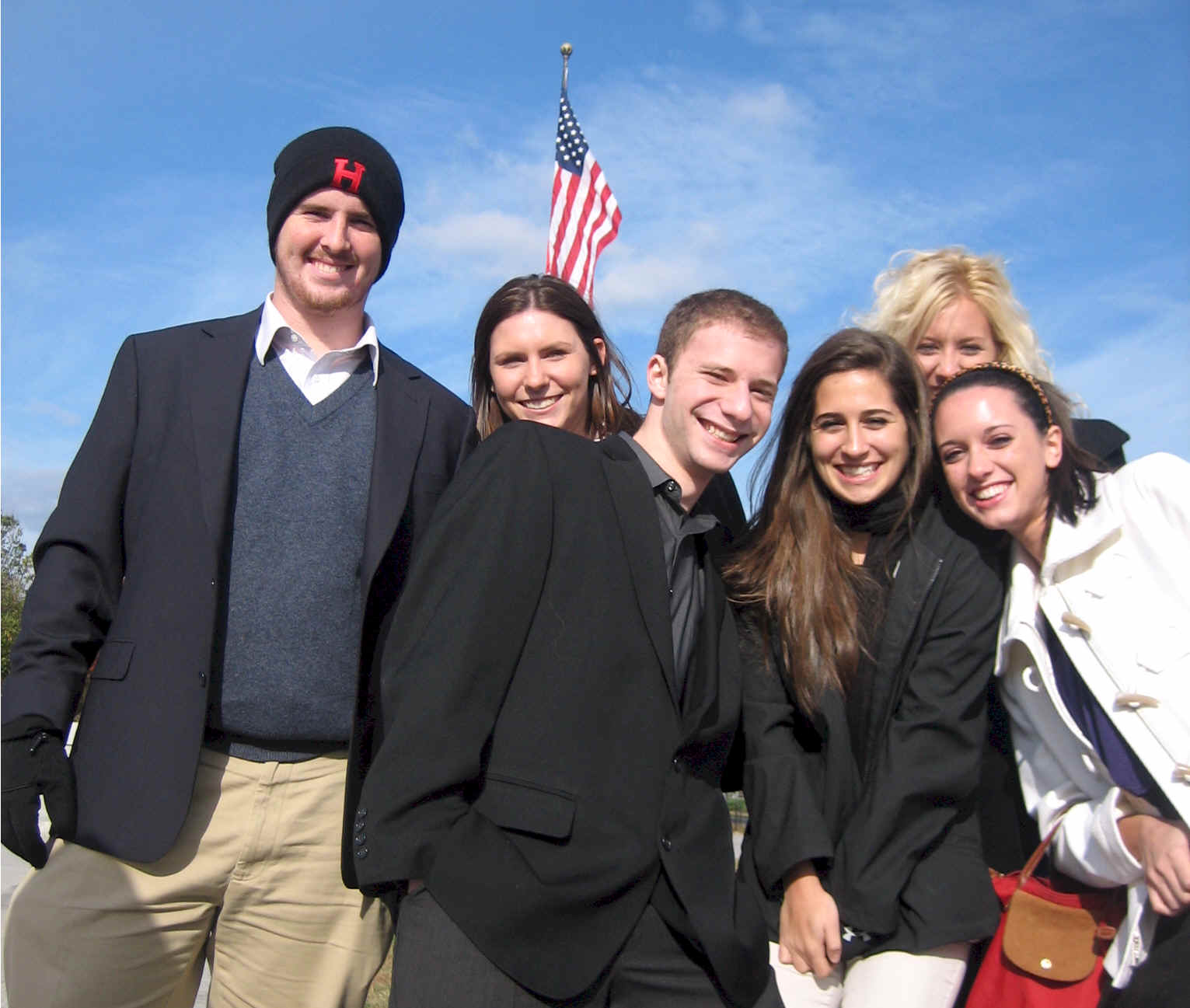
Will, Julia, Joel, V-Ron, Mary and Shea
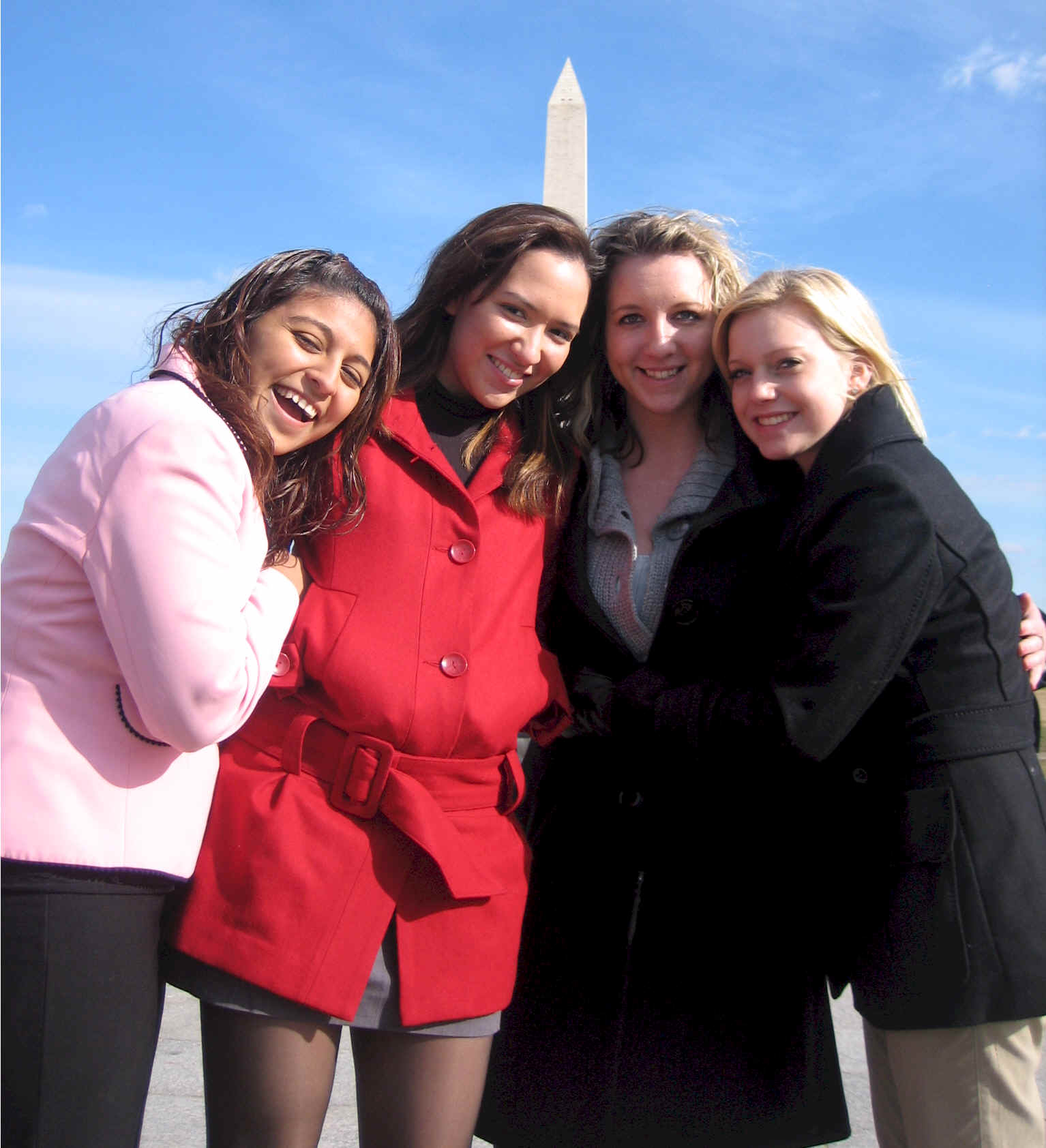
Jhoanne, Sammy, Hilary and Melissa
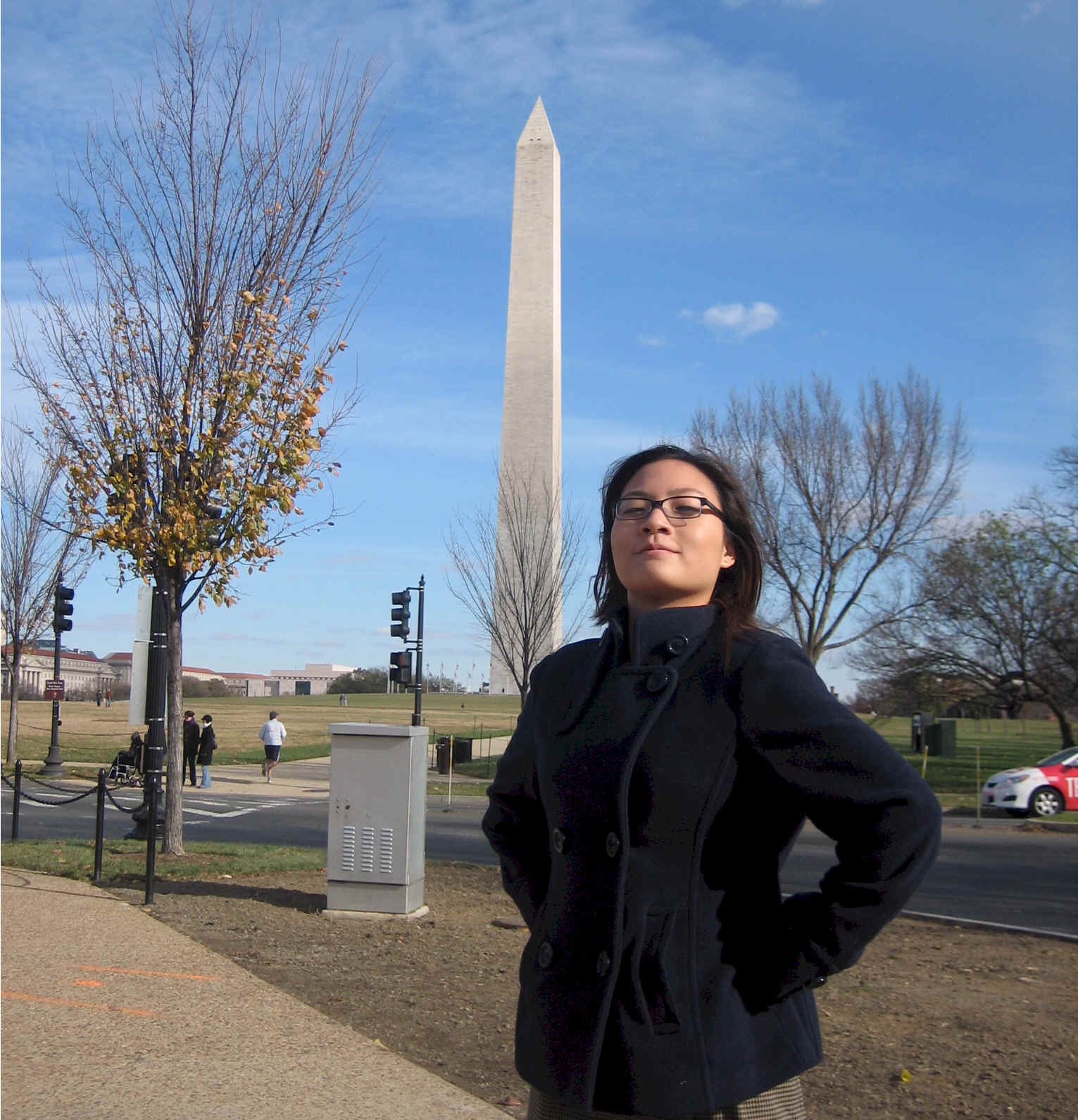
Someday Maia will have a monument dedicated to her.